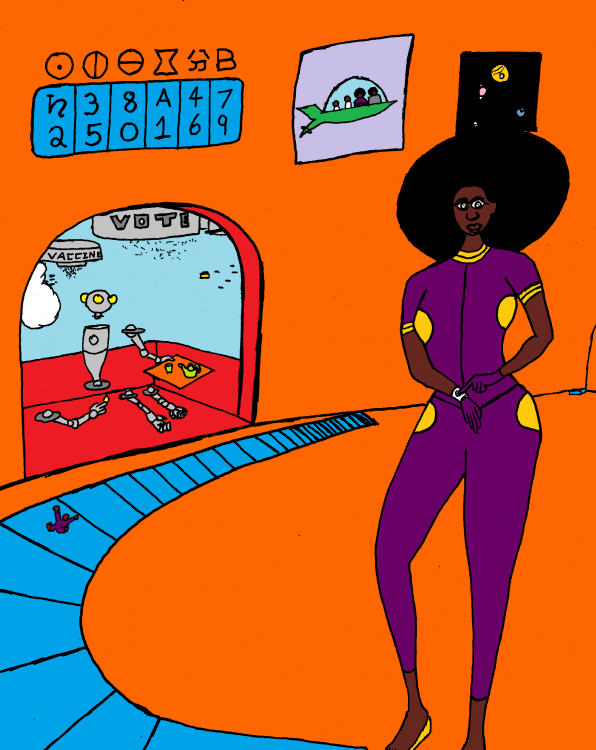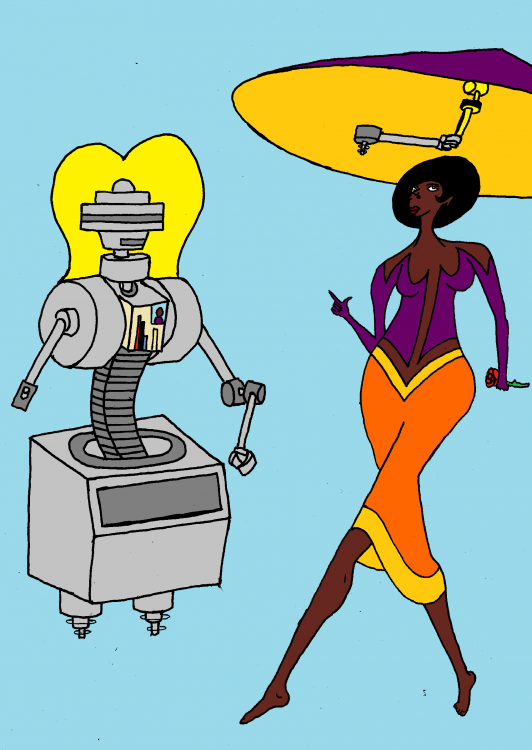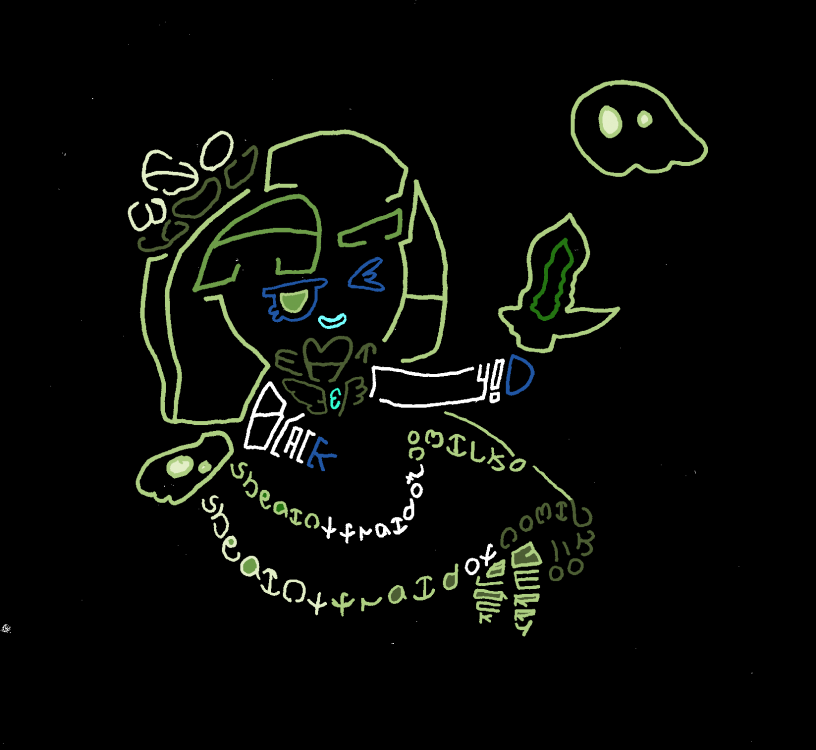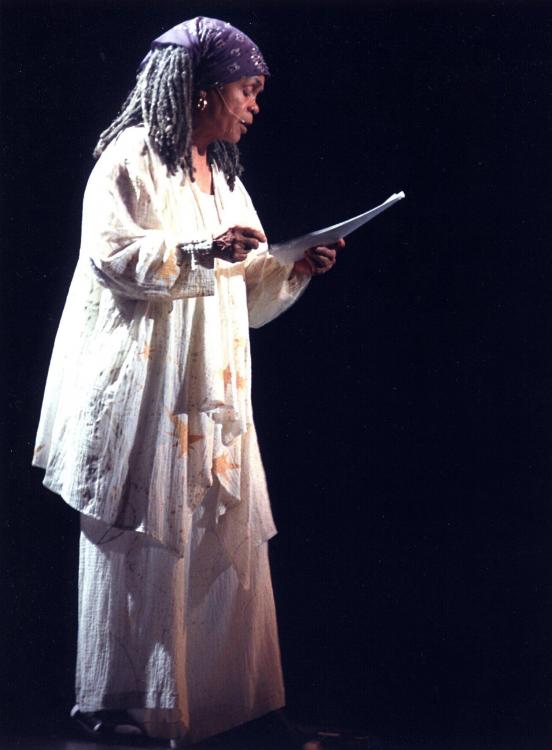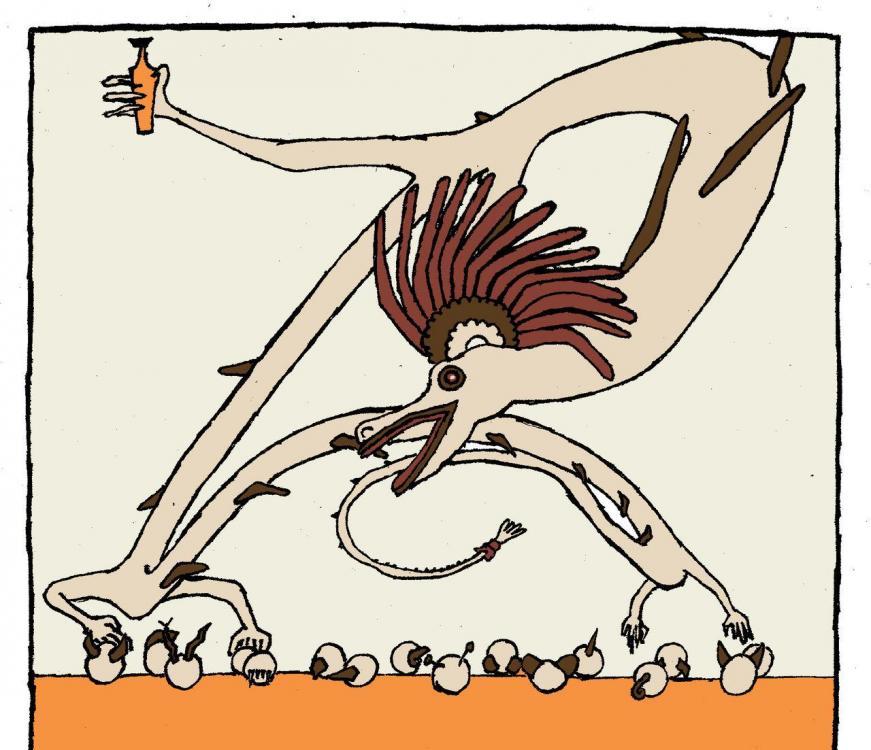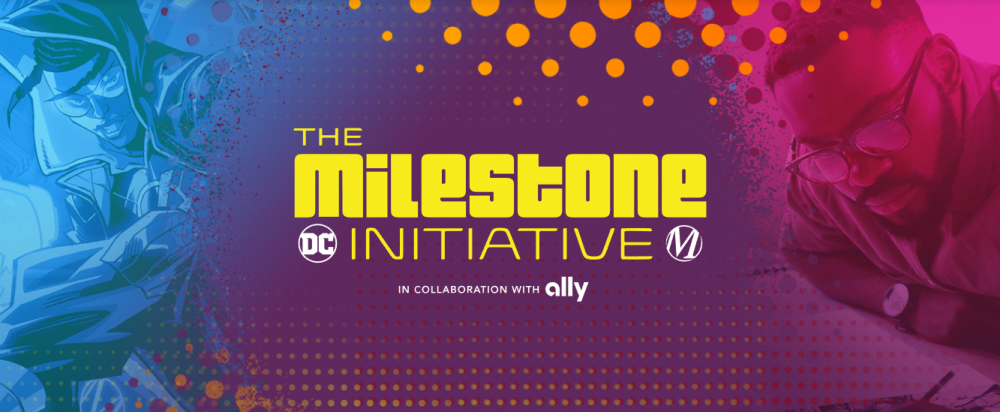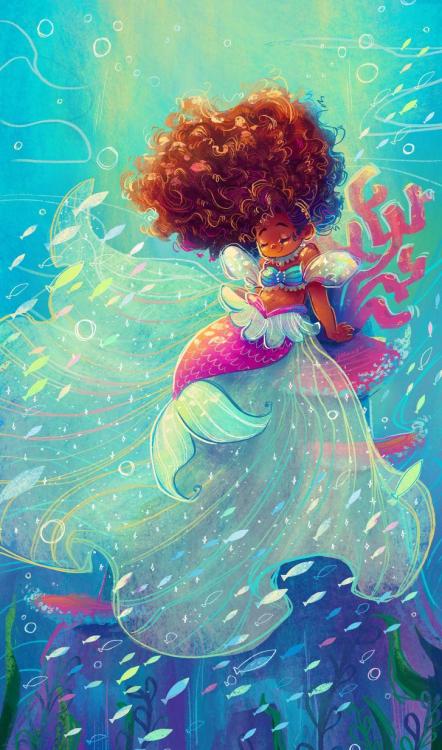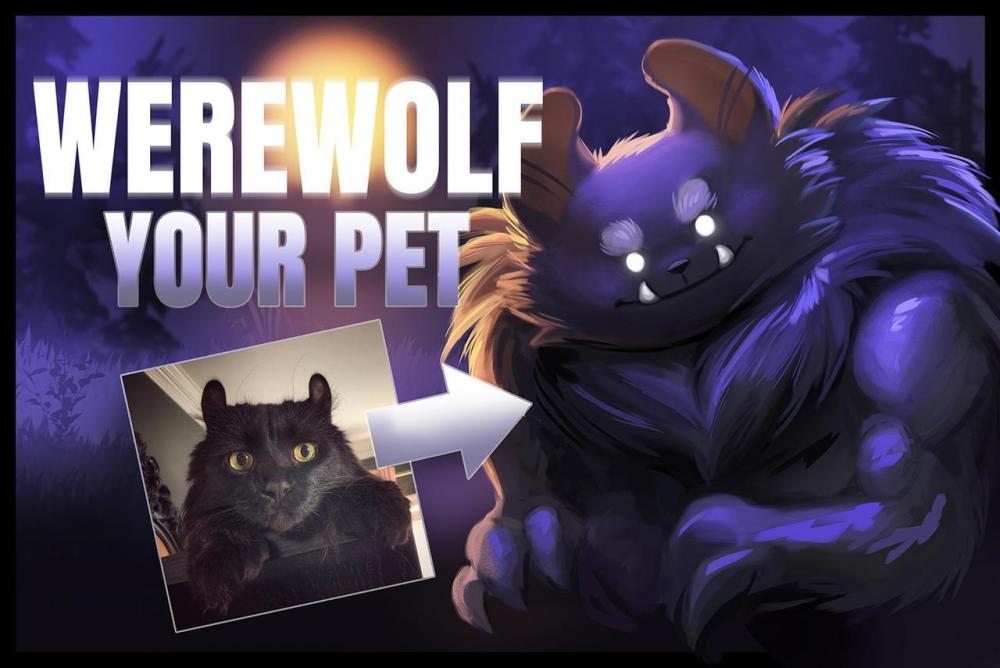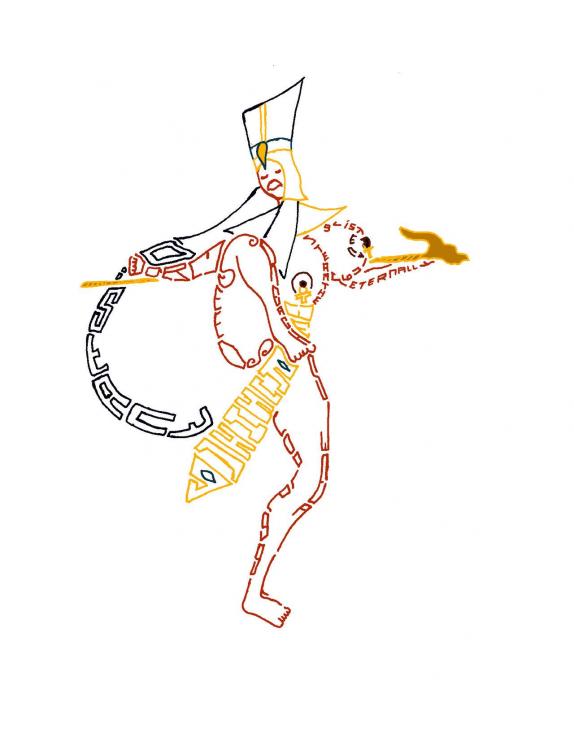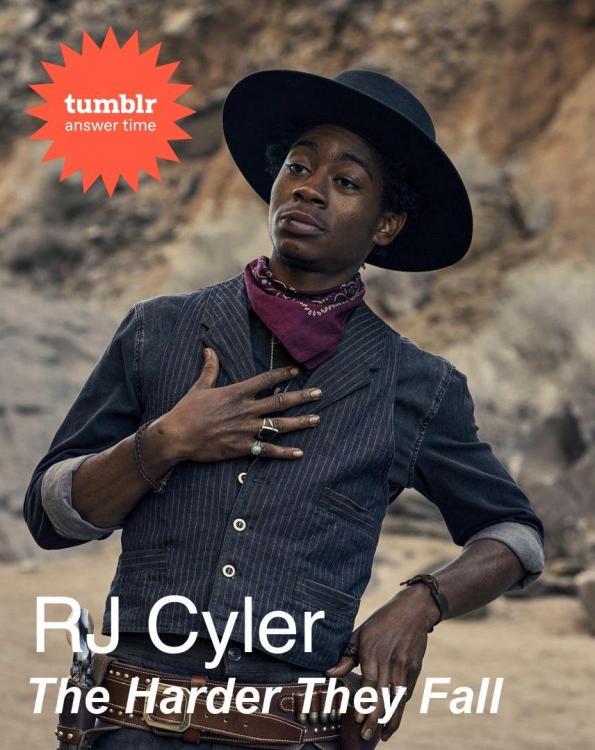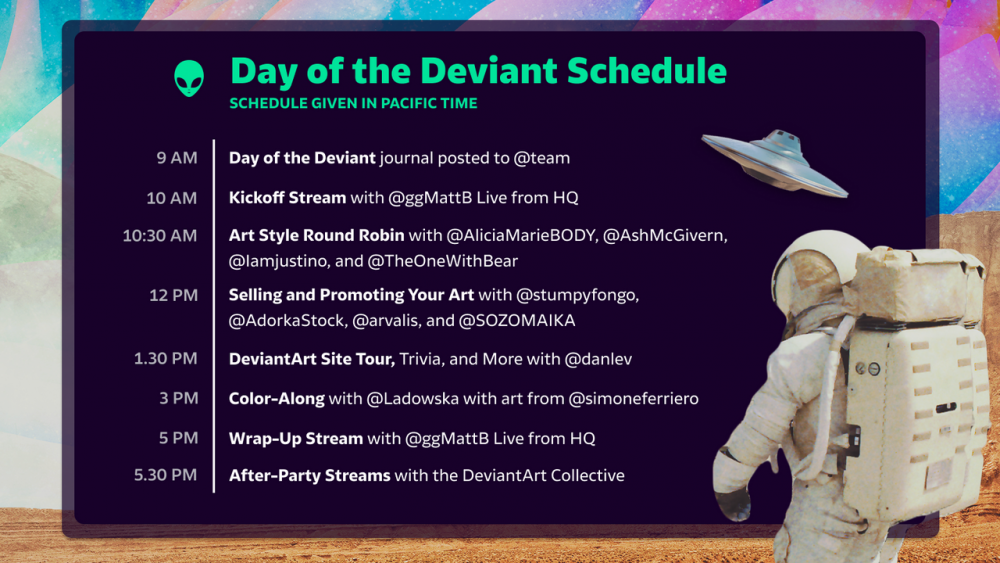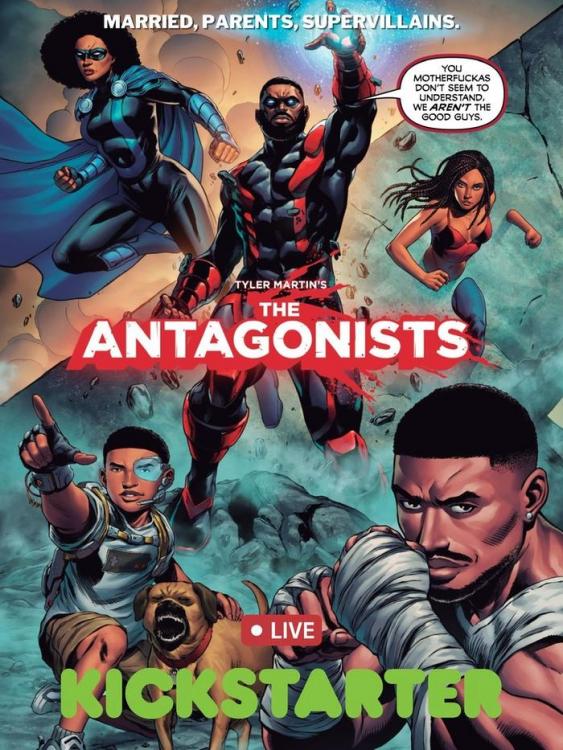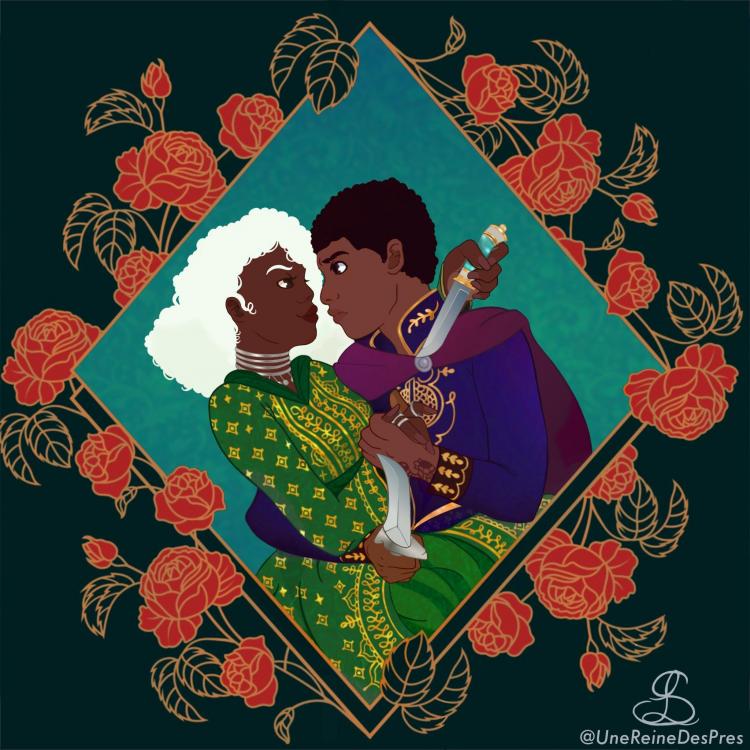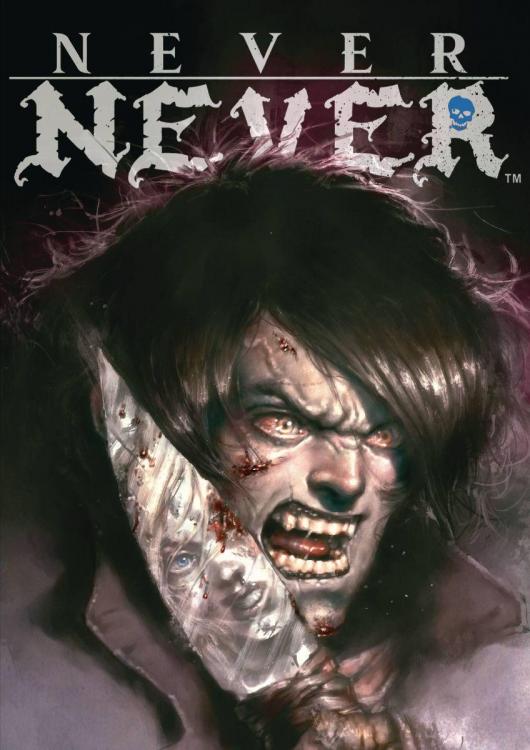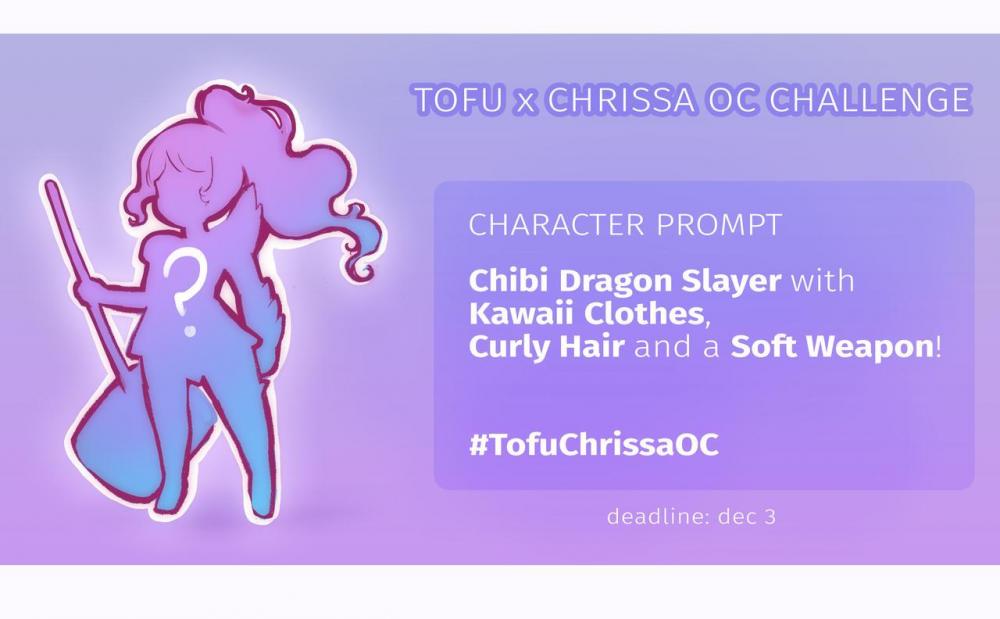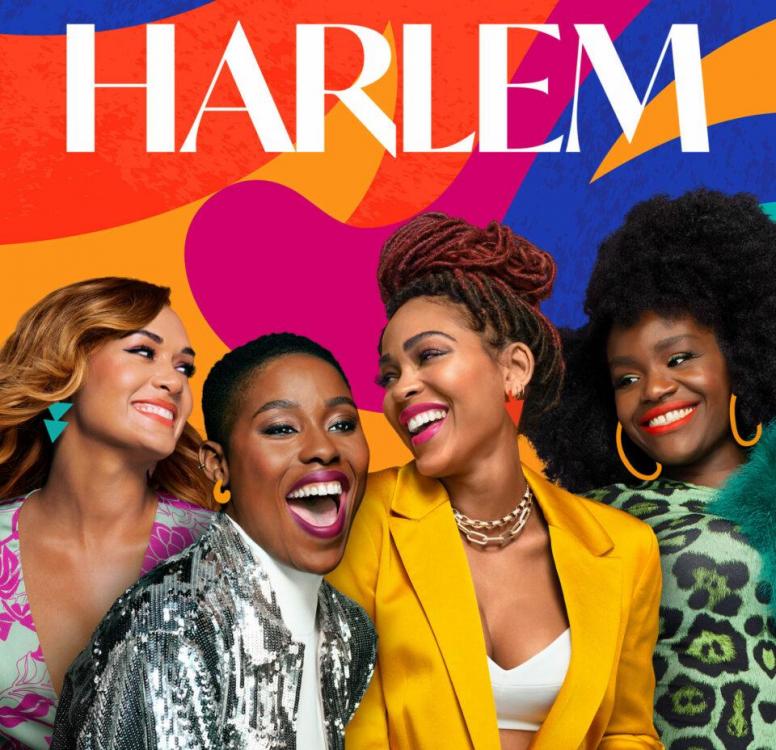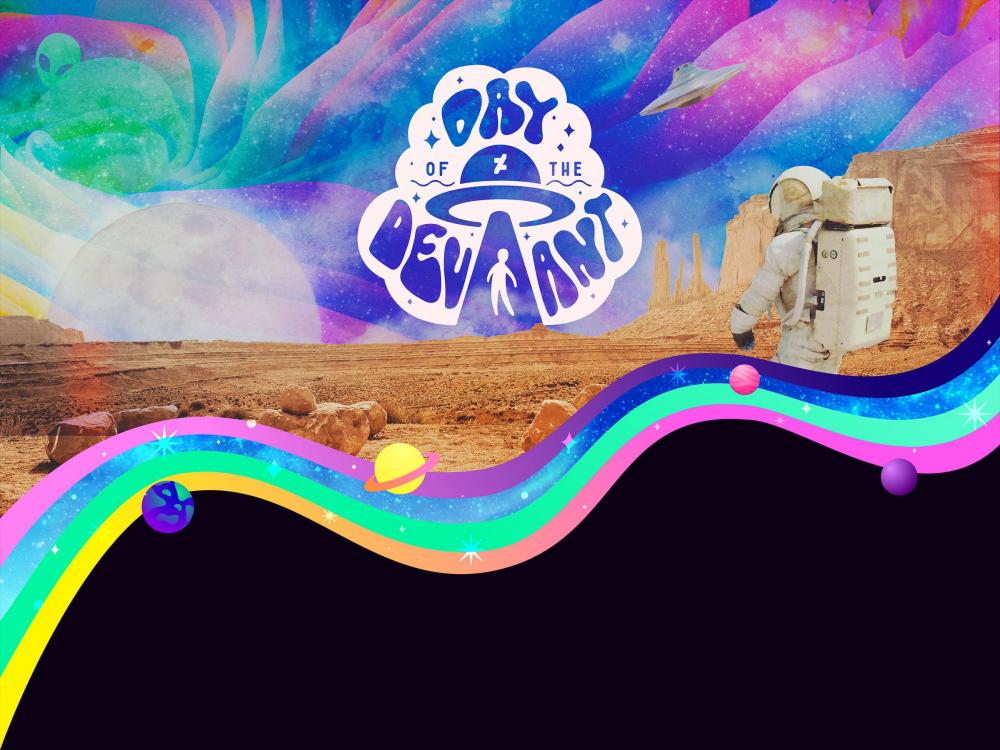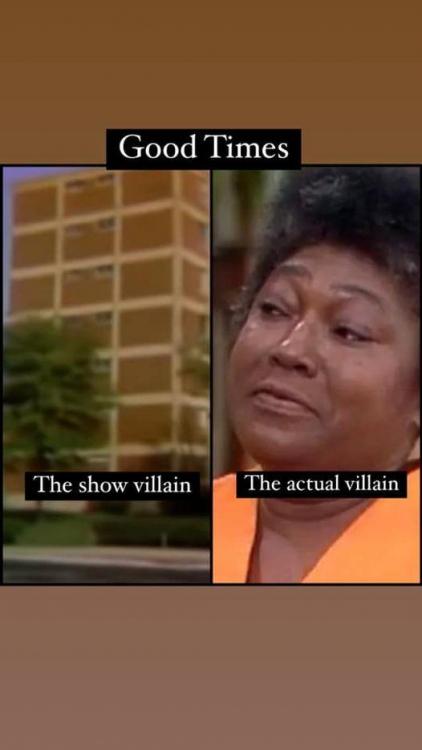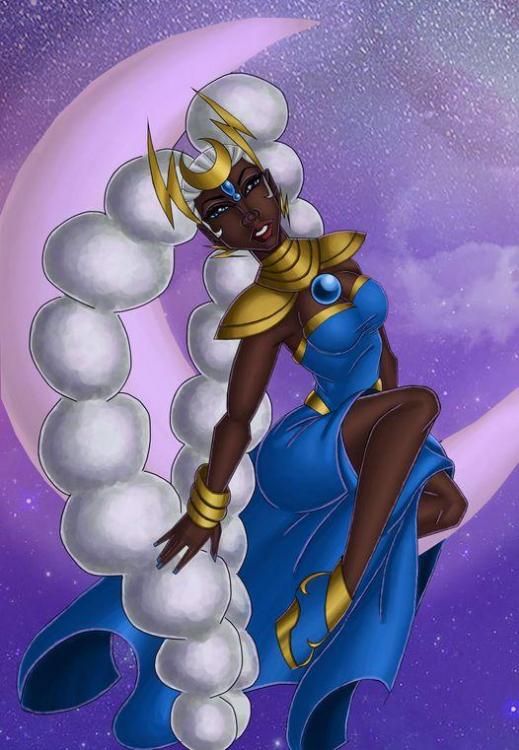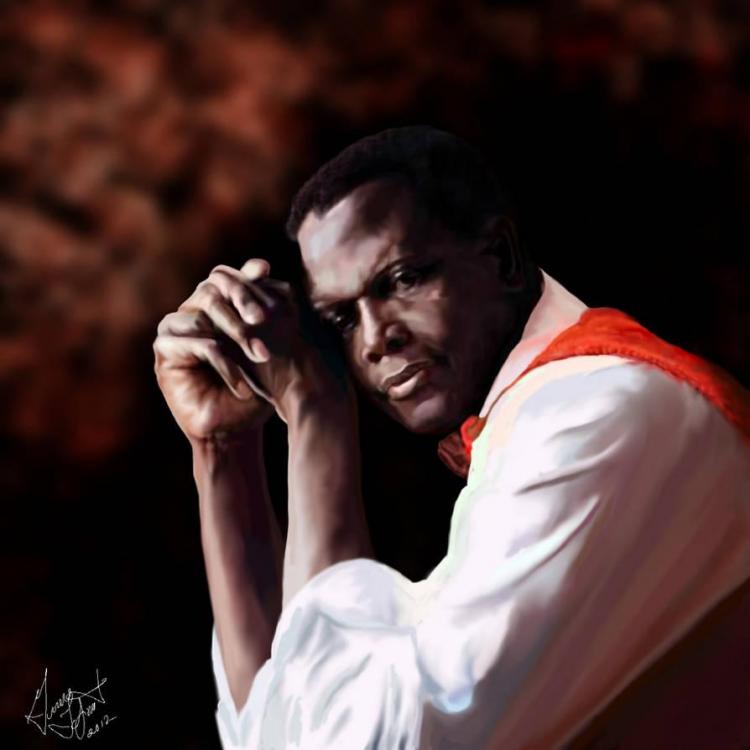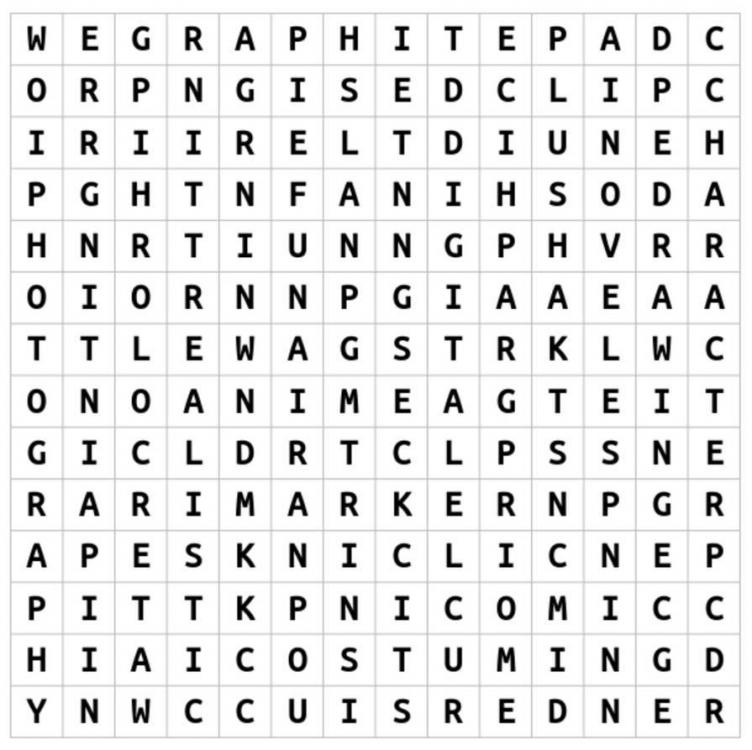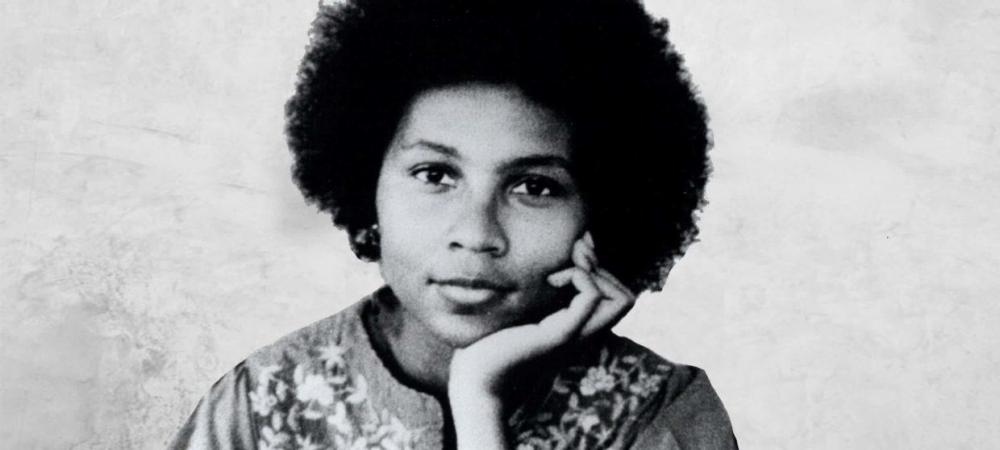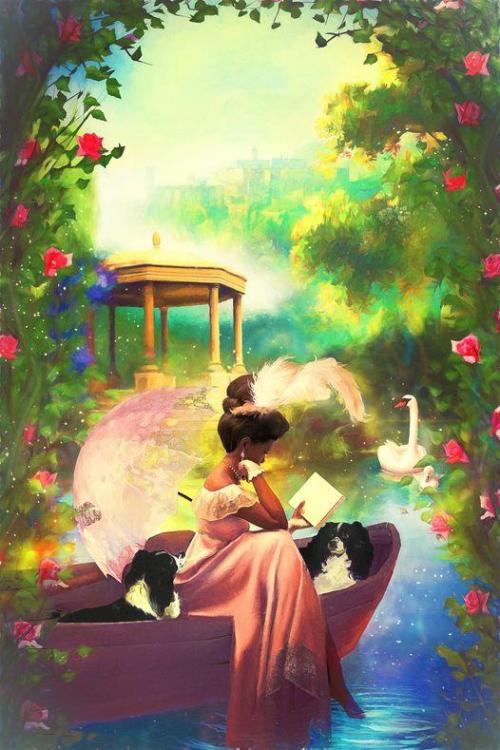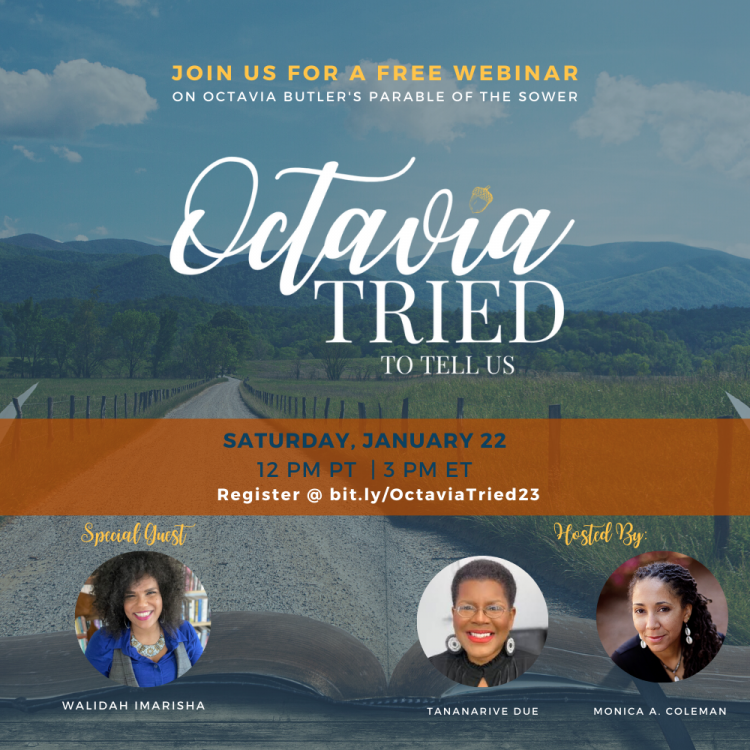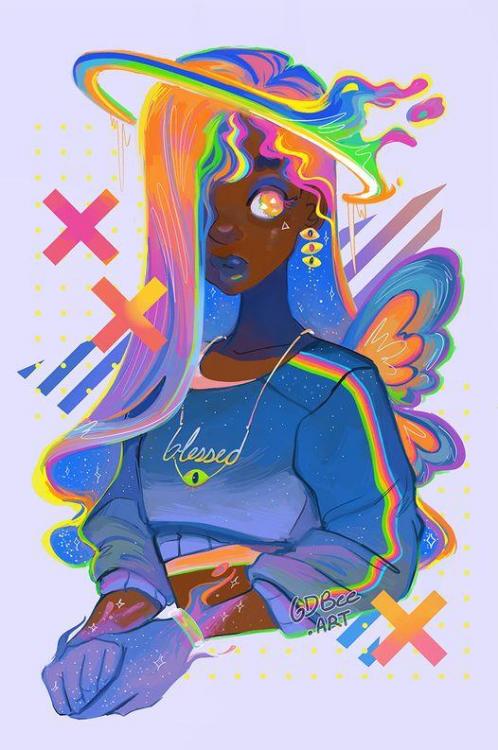-
Posts
2,425 -
Joined
-
Last visited
-
Days Won
91
Content Type
Profiles
Forums
Blogs
Events
Status Updates posted by richardmurray
-
Retrofuturism pinup- Ethel
https://www.deviantart.com/hddeviant/art/Retro-Futurism-Pin-Up-entry-894906430?ga_submit_new=10%3A1634260489&ga_type=edit&ga_changes=1REtrofuturism pinup Ethel's dream
https://www.deviantart.com/hddeviant/art/Dream-Advertisement-of-the-RMC-7000-894906666?ga_submit_new=10%3A1634260388Retrofuturism Ethel, black and white
https://www.deviantart.com/hddeviant/art/Retrofuturism-pinup-Ethel-Black-and-White-894907641?ga_submit_new=10%3A1634260657Retrofuturism pinup model R
https://www.deviantart.com/hddeviant/art/Retrofuturism-Pinup-Model-R-894907759?ga_submit_new=10%3A1634261234Retrofuturism pinup model R- black and white
https://www.deviantart.com/hddeviant/art/Retrofuturism-pinup-model-R-black-and-white-894908633?ga_submit_new=10%3A1634261335
-
Title: Blackberry Cookie Run in my style Color inverted
Artist : Richard MurrayBlackberry Cookie Run in my style Color
https://www.deviantart.com/hddeviant/art/Blackberry-Cookie-in-My-Style-Color-895978158?ga_submit_new=10%3A1635196887Blackberry Cookie Run in my style Black and White- enjoy coloring
https://www.deviantart.com/hddeviant/art/Blackberry-Cookie-in-My-Style-BW-895975264?ga_submit_new=10%3A1635196566Blackeberry Cookie Run theme song
https://richardmurrayhumblr.tumblr.com/post/666052665503055872/cover-title-blackberry-cookie-run-in-my-styleMy Cookie in Cookie Run style Color
https://www.deviantart.com/hddeviant/art/My-Cookie-in-Cookie-Run-Style-Color-895979609?ga_submit_new=10%3A1635197698My Cookie in Cookie Run style Black and White
https://www.deviantart.com/hddeviant/art/My-Cookie-in-Cookie-Run-Style-BW-895979382?ga_submit_new=10%3A1635197582
-
By Sarah Bahr < https://muckrack.com/sarah-bahr >
Oct. 7, 2021
The poet and activist Sonia Sanchez, 87, a leading figure of the Black Arts Movement, has been awarded the Dorothy and Lillian Gish Prize, the prize trust said on Thursday.The honor, which carries a cash award of about $250,000, is awarded to an artist who “has pushed the boundaries of an art form, contributed to social change and paved the way for the next generation.”
Sanchez, the author of more than 20 books, is known for melding musical formats like the blues with traditional poetic forms like the haiku and tanka, using American Black speech patterns and experimenting with punctuation and spelling.
Her work champions Black culture, civil rights, feminism and peace.
“When we come out of the pandemic, it’s so important that we don’t insist that we go back to the way things were,” Sanchez said in a phone interview on Tuesday. “We’ve got to strive for beauty, which is something I’ve tried to do in my work.”
This year, the five-member selection committee, led by Zeyba Rahman, the senior program officer of the Building Bridges program of the Doris Duke Foundation for Islamic Art, chose Sanchez unanimously out of 50 finalists from various artistic disciplines.
Rahman said in a statement that the award recognizes Sanchez’s “extraordinary literary gift and her lifelong commitment to speaking up for social justice.”
On Nov. 11, Sanchez will reprise her role in Christian McBride’s “The Movement Revisited,” in which she will recite the words of Rosa Parks, at the New Jersey Performing Arts Center.
-
Mrs. Tlīlxochitl - Dessert Dragon
https://www.deviantart.com/hddeviant/art/dessertdragon-color-V2-893484832New Venus borders < Fav Season>
https://www.deviantart.com/hddeviant/art/Favseason-submission-893482074The Disappearance of the Road <Thursday Prompt- Dream catcher>
https://www.deviantart.com/hddeviant/art/The-disappearance-of-the-road-892801995
-
NEW VOICES. NEW VISIONARIES
IT’S TIME TO WRITE A NEW CHAPTER IN THE SUPERHERO STORY.
If stories are what shape the world we live in, then the storytellers should reflect that world. The Milestone Initiative is looking for the next generation of Black and diverse comic book creators.DC Superhero
In 1993, four Black creators created Milestone Comics: a new universe of Black Super Heroes, brought to life by Black creators and other artists of color. Milestone didn’t just change the way our heroes looked. It built a pipeline for talent who had been excluded and marginalized for too long, and an ecosystem in which Black creativity could thrive. Now, with the relaunch of Milestone Comics and the creation of The Milestone Initiative, we want to honor the creators of Milestone by continuing their mission. But we can’t do it without you.DC Superhero
MAKE YOUR MARK
Do you have a story to tell? Do your experiences, imagination, and perspective go beyond the limits of what you see on TV, in movies, and in other media? If you live and breathe comics, and you’re an emerging Black artist or writer —or a creator from an underrepresented group —we’re looking for you to join The Milestone Initiative.The path to a sustainable creative career in this competitive industry will never be an easy one. You already know that —you’ve spent years honing your craft on your own. But with The Milestone Initiative, we hope to give you the support you need to make that hard work pay off. The next step starts here.
DC Summit
THE
SUMMIT
Participants in The Milestone Initiative will be invited to a one-week summit, hosted by WarnerMedia, DC, and Ally, where they’ll make connections, create community, and begin an immersive course to help hone creative skills and better understand the comic book industry.WHEN
02.14.22 – 02.18.22WHERE
BURBANK, CA
1. ARRIVE
If you’re selected to participate in The Milestone Initiative, your journey will begin with the Milestone Summit. You’ll travel at our expense to DC’s headquarters in Burbank, to meet legendary creators, editors, and executives in the comics and entertainment industries.
2. LEARN
Under the mentorship of some of the most prominent names in comics, as well as Ally’s team of financial experts, you’ll receive in-depth, substantive instruction about building a creative life and earning a living in this field. You’ll hone your creative skills, but you’ll also learn the business of the comics industry and receive advice on sustaining a long-term career. Following the Milestone Summit, you’ll go home and participate in an 8-week virtual course, where you’ll receive technical training through best-in-class cartooning and graphic art school The Kubert School.
3. CREATE
It won’t be easy —throughout this multi-week course, you’ll be working as well as learning, crafting stories with your fellow participants. At the end of this journey you’ll come away with polished work that will showcase your unique talents, new knowledge, and skills and you'll have a pathway into the DC talent community if you want to pursue it.
4. IGNITE
The Milestone Initiative doesn’t end with the the completion of the coursework. The team from DC will remain in contact with all participants in the months following and will work with them to find appropriate comics assignments and other work that will help them continue to grow as creators and further their careers with DC and in the comics world.HOW TO APPLY
The Milestone Initiative is open to Black and other underrepresented creators who are ready to enter the comic book industry at a professional level. You’ve got the talent, you’ve put in the hours of practice, and this is the opening you’ve been waiting for.Think you have what it takes? Get ready to dive into the application. You have a story to tell. We want to hear it.
PROCESS
DC Milestone
Now a quick reality check: we know you’re serious, and we’re serious too. So this application is going to take some time. We think it’s worth it.STEP 1: 10-20 MINUTES
First, we’ll ask you for a bit of biographical information. We’ll also ask you to provide us with links to a few existing pieces of completed original work, to give us a sense of your creative voice and vision.STEP 2: 5-7 DAYS
The next sections are where you should plan wisely. We’ll be asking you to put your talent and skills into action by completing a short assignment. If you’re an artist, that will mean drawing three comic pages based on a script we provide; if you’re a writer, you’ll be creating a script for an 8 page story based on a loose prompt we’ve created.STEP 3: 2-3 DAYS
Finally, we want writers and artists to answer a few, short essay questions and tell us who you are as a creator. Describe your voice and your vision —what do you believe you have to offer the world? The answers won’t take long to write, but they will take some time to think about. (And artists, don’t be intimidated if writing isn’t your thing. We’re looking for substance here, not style.)Got it? Get started. You don’t have to complete everything now —our system can save your work, just make sure to click “Save Draft” at the bottom of the page so you can begin now and tackle it a piece at a time.
DC Superpowered
WHAT IS THE MILESTONE INITIATIVE?
Superman wasn’t just the first superhero: he was an immigrant, an American, and an enduring symbol of our shared ideals. But as an explosion of comic book heroes took place over the second half of the 20th century, there was something missing. Despite an enduring Black readership, it took decades before the first Black heroes appeared, and once they did, they remained uncommon. Even the most prominent Black heroes usually appeared in stories written and illustrated by white creators.Enter Dwayne McDuffie, Denys Cowan, Michael Davis, and Derek T. Dingle. With talent, vision, and tenacity, these four Black creators carved a place for themselves in an industry that didn’t always welcome or understand them. Despite their success, they were frustrated by the dearth of other Black creators in their field, and the resistance they met in trying to tell stories that reflected their own experiences and perspectives.
DC story-1-480
So they founded Milestone Media —a company that placed Black superheroes at the center of the action with their Milestone comics line, and which would make an inclusive space for Black and underrepresented comic book creators to flourish and succeed.Milestone hit like a space pod crashing to Earth —and its impact has continued to this day. Now, Milestone Media, is helmed by Reginald Hudlin and Denys Cowan, and DC is relaunching Milestone Comics and reintroducing its characters to new audiences, but we understand that there’s still much more work to be done to continue the mission of Milestone’s founders.
That’s why, with Ally as our partner, we’ve created The Milestone Initiative. While Milestone Media is about telling the stories of Black heroes, The Milestone Initiative is about empowering the creators who can tell those stories in ways that are resonant, real, and revolutionary. The program is part of DC’s talent development program, Next Generation DC (NGDC), and is designed to identify, educate, spotlight, and empower the next generation of Black and diverse creators in our field so that the stories of the next century are truly reflective of the world around us.
Throughout American history —in the comic book industry as well as in other creative fields —Black and other underrepresented creators have been consistent innovators and visionaries despite systems that work to exclude them. Now, as comic books take center stage in popular culture, DC, WarnerMedia, and Ally want to change that with The Milestone Initiative. The Milestone Media founders started the mission. It’s time for you to pick up their mantle.
DC story-2-480
READY TO MAKE YOUR MARK?
SUBMIT YOUR APPLICATION
FREQUENTLY ASKED QUESTIONS-

@Mel Hopkins @Troy I have already figured out my story. I will have it all submitted by tomorrow mid afternoon. it is open to all, I hope you go for it.
-

MILESTONE INITIATIVE
ASSIGNMENTS & ESSAYS
------------------------------------------------------------------
WRITER ASSIGNMENT
Please write a script for an 8-page story featuring Icon and Rocket, based on the story prompt below. Your script needs to be a self-contained story and should follow the standard comic book script format. We will be looking most closely at structure and flow, as well as the entertainment value of your story, in addition to your ability to properly portray these well-established characters through dialogue and actions.Icon & Rocket 8 Page Story Prompt
Icon and Rocket are in their civilian guises, in a world city of your choice, sampling local cuisine and discussing a cultural topic of your choice (Icon, as always, taking the long and inherently traditional view of things, and Rocket arguing passionately for the view of her generation), when a super-powered or extraordinary threat menaces the city. Ideally, the threat or ensuing action resonates in an interesting way with their conversation, leading to an exciting conclusion that challenges them to better understand each other’s points of view. Remember to write with spectacular visuals and action pacing in mind, including a splash page and other dramatic moments for your artist to show.............................................
ARTIST ASSIGNMENT
Please draw the 3-page story sequence. Current Static writer Vita Ayala wrote the story, which represents the type of script you will see as a DC artist. Your artwork for these pages should be black and white only. Full pencils are required. Inks are optional. We will be looking most closely at page layout and storytelling, along with the quality and dynamism of your illustrations.ARTIST ASSIGNMENT
SPECS:Your story should adhere to DC’s standard technical requirements, which are:
Standard comic trim = 6.325 inches x 10.1875 inches (16.0655 cm x 25.87625 cm)
Image safe area should be .25 inches (0.635 cm) inside of the trim (gutter)
Bleed area is .125 inches (0.3175 cm) outside the trim (draw to the edge)
Pencils: 300 dpi grayscale
Inks: 600 dpi grayscale or bitmapEXAMPLE OF SCRIPT FOR WRITING OR ARtist Assignment
-
-
 1
1
-
- Report
-

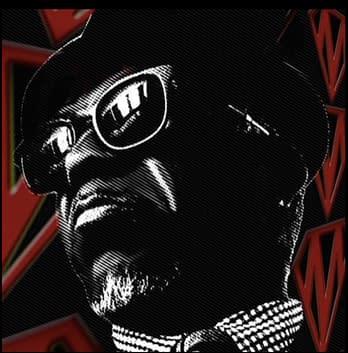
Michael Davis, Milestone Founder, Applies To Milestone Initiative
Posted on October 19, 2021 by Rich Johnston|Comments
Michael Davis was one of the co-founders of Milestone Media, and used his own life story when creating the background and bible for their most successful character, Static. He ran a mentorship programme through his production studio Bad Boys, which he used to help find talent for Milestone, including the late John Paul Leon, whose first comic book job was drawing Static #1.This weekend, DC Comics announced the new Milestone Initiative at DC Fandome to serve "Black and underrepresented" comic book creators, as part of their new talent development programme, Next Generation DC (NGDC) stating that "if stories are what shape the world we live in, then the storytellers should reflect that world. The Milestone Initiative is looking for the next generation of Black and diverse comic book creators" who are ready to enter the comic book industry at a professional level. DC states that "throughout American history —in the comic book industry as well as in other creative fields —Black and other underrepresented creators have been consistent innovators and visionaries despite systems that work to exclude them."
This was all news to Michael Davis, of course. DC hasn't involved him in any of the new Milestone projects. So he did the next best thing. And I have to say, when he told me, I burst out laughing. Michael Davis has applied to join the Milestone Initiative.
So what kind of credentials has he given, as well as a co-founder of Milestone Media and co-creator of the original launch titles? Well, his Bad Boy Studios launches the careers of Aaron McGruder, John Paul Leon, Bernard Chang, Brett Lewis, , Christopher Sotomayor, N. Steven Harris, Shawn Martinbrough Kevin McCarthy, Phil Jimenez, DC Comics' first Latina editor Alisande Morales, Walter McDaniel – the owner and CEO of Red Dragon Studios, the only African American-owned animation studio in China, Jason Medley – now a senior designer at Warner Bros, TV art director/producer Chuck Drost, hip hop designer Willie Esco and Jamaican TV anchorman Basil Reid. In 1996 he was Mentor Of The Year according to Mentor Magazine. It was also the year he had T%he Michael Davis Auditorium named after him at the Gordon Parks Academy.
As well as being a facilitator for comic book projects such as The Fifth Beatle, he also created and hosted The Black Panel at every San Diego Comic-Con, becoming the most non-Big Two attended regular panel at the show. Then there was his Guardian Line Universe was launched by Christian publishing and media firm, UMI (Urban Ministries, Inc) developed to appeal to a multicultural audience, with a focus on African American youth, selling over two million issues directly into the Black household and church. He also created The Action Files, a low-level reading program for schools to be integrated into Viacom entertainment companies, first distributed through Simon & Schuster, and still, the only comic book reading program curriculum taught in any school system to this day. The program now published through Pearson Learning has added a curriculum-free version available on am*zon. And recently, has been working on a new publishing initiative called Level Next with Wayne Brady.
Maybe some of those will help him be picked for the Milestone Initiative? You know, as well as co-founding Milestone in the first place?
https://bleedingcool.com/comics/michael-davis-milestone-founder-applies-to-milestone-initiative/
-
-
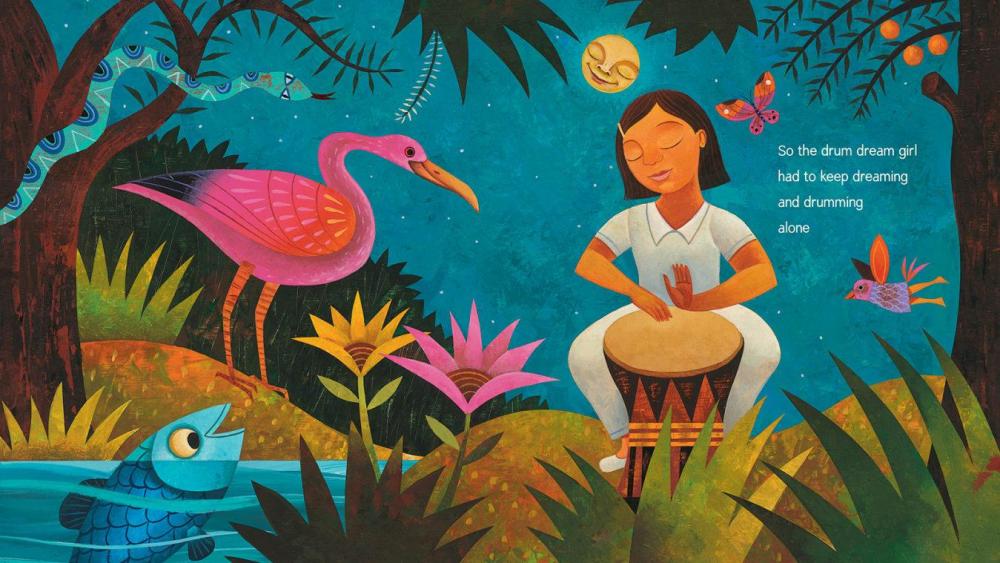
Afro Latinx children's books are still too rare. These four authors are trying to change that
Written by
CNN Style StaffA vivid homage to the graffitied streets of the Boogie Down Bronx and an interstellar quest for the perfect natural hair style are part of a new wave of picture books celebrating Afro Latinx culture and characters, in an industry where these stories are still few and far between.
"I want to show kids of diverse backgrounds that they can go on fantastical adventures, too," said New York-based illustrator and toy designer Yesenia Moises, author of "Stella's Stellar Hair." She noted that in children's media, stories featuring protagonists of color are often about overcoming struggle, or are "hyper-focused" on identity and race. "I want to step away from that for a moment to be able to show that ... their worlds can be vibrant and full of color."
Having grown up without picture books that reflected their own experiences, the Latinx authors and illustrators featured below are crafting and sharing those stories themselves, with colorful vivid imagery, prose and verse.Here, four authors speak about their storytelling philosophies, and why kids need to see themselves in the pages of the stories they read.
Eric Velasquez
Eric Velasquez is an Afro Puerto Rican illustrator, author and educator. He has illustrated more than 30 books and has authored four, including "Octopus Stew," about a boy named Ramsey who must save his grandmother from the gargantuan octopus she's cooking.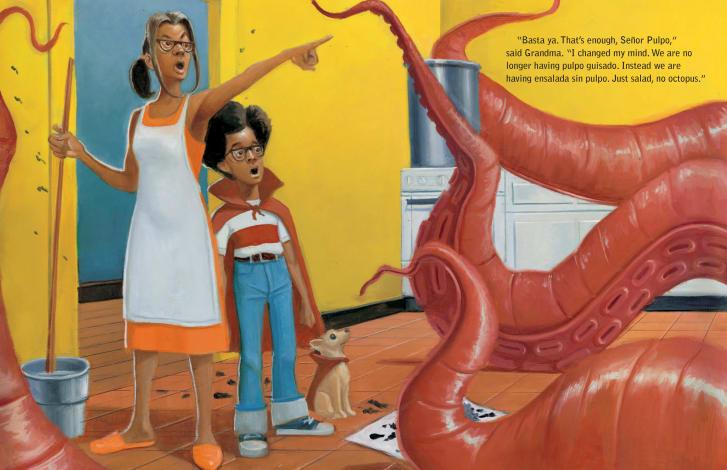
"Octopus Stew" was inspired by the tall tales of Velasquez's father. Credit: Eric Velasquez/Courtesy of Holiday House Publishing
My family comes from a strong oral storytelling tradition; we would gather together to share and listen after nights of dinner and music, and so it was something that I wanted to be part of.
My book "Octopus Stew'' is essentially a tribute to that oral tradition. Whenever my dad would come over and cook for my friends and me, he would inevitably say, "Did Eric tell you about the day I rescued him and his grandma from the giant octopus?" Every single one of my friends knows that story because of him, and over the years, it just grew like a tall tale.
Grandmothers are central to many of my stories. I can trace my own career back to the summers I spent sketching in my grandmother's living room in Spanish Harlem, surrounded by music.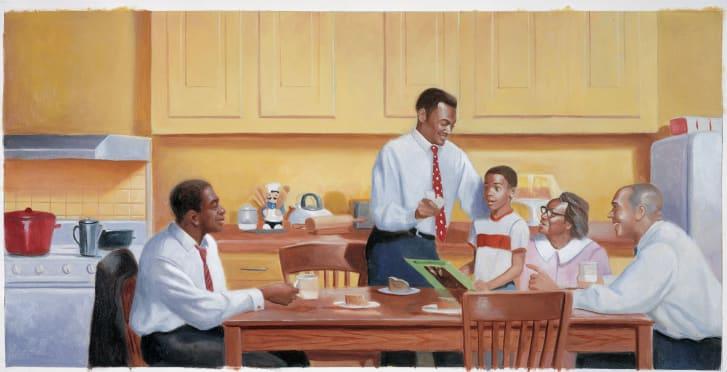
In "Grandma's Records," Velasquez recalls the memories from his own childhood that made him understand that 'heroes' aren't just White. Credit: Eric Velasquez/Bloomsbury Children's Books
Those summers inspired my book "Grandma's Records," and also taught me the importance of having heroes who look like us. I remember marveling at the musicians who would visit when I was young, including Rafael Cortijo, the prime architect of Puerto Rican salsa. When he came by, my grandmother told me only to refer to him as "maestro."
"That man is a genius," she said, "and he deserves to be treated with respect."
In school, when we learned that Beethoven was a musical genius, I remember thinking, "I know a genius too! He loves rice with beans and roast pork, and he even entertains us with music after dinner." I didn't feel there was a disconnect between the concept of "genius" and what I saw around me.
But over time, I realized other kids struggled to do the same; at art school, when they pictured "heroes" they would never draw men or women of color.
That's when I started to realize how important representation is. When you grow up with examples of diverse heroes, it affects your imagination. You start to believe that you can be part of this creative world, and I think that's very important.
Yesenia Moises
Yesenia Moises is an Afro Dominican toy designer and illustrator. She is the author of "Stella's Stellar Hair," a book about a young Black girl with natural hair who travels the solar system in search of hairstyles."Stella's Stella Hair" is about owning your natural hair, inspired by Moises' own hair journey. Credit: Yesenia Moises
When it comes to my hair, I spent most of my life trying to fit the mold of Eurocentric beauty standards by chemically relaxing my hair. Growing up, my mom, a fair-skinned Latina woman with the loose waves a lot of people aim for -- not at all like mine -- would always comment on how thick or unruly it is, or how it tangles itself.
It was only after I started letting my hair grow out in its full, natural glory that I grew to love it, but even then I realized that many kids today are still made to feel bad about their hair. So I created "Stella's Stellar Hair" to celebrate the variety and creativity of Black hair across the African diaspora.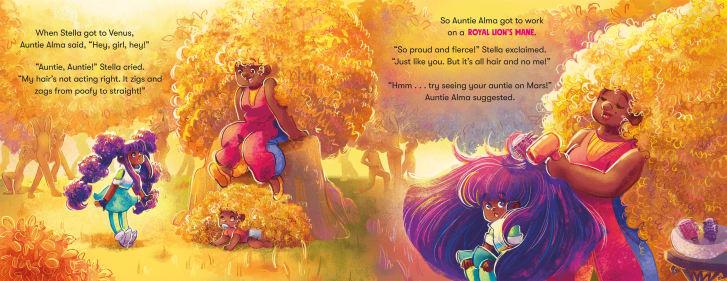
Stella is aided on her intergalatic quest by cosmic aunties, who each have a hairstyle for her. Credit: Yesenia Moises
The whole concept of having aunties from the different planets came from one Black hair trade show I attended, which was full of older Black women with amazing natural hairstyles that showed their personalities. And I'd never seen that before. I was so used to making sure that my hair was as flat as possible, but here were all these older women who were just proud of the hair that grew out of their scalp. It really inspired me to show just how versatile and beautiful Black hair can be.
I think it's really important for young readers to feel seen more than anything else. As a dark-skinned Afro Latina, it wasn't until 2018, when I saw Miles Morales become Spider-Man in "Spider-Man: Into the Spider-Verse," that I saw someone with my background represented in the media I watch. I really loved how the director made a choice to exclude English subtitles for the conversations Miles had with his mother. When you add subtitles, it makes the experience feel foreign; but in their household, it was natural -- just like it is in mine. That really floored me.
Margarita Engle
Margarita Engle is a poet and author whose works celebrate her Cuban heritage. Her book "Drum Dream Girl," illustrated by Rafael López, is inspired by the true story of a young Chinese Afro Cuban girl who became a drummer for Cuba's first all-female jazz band.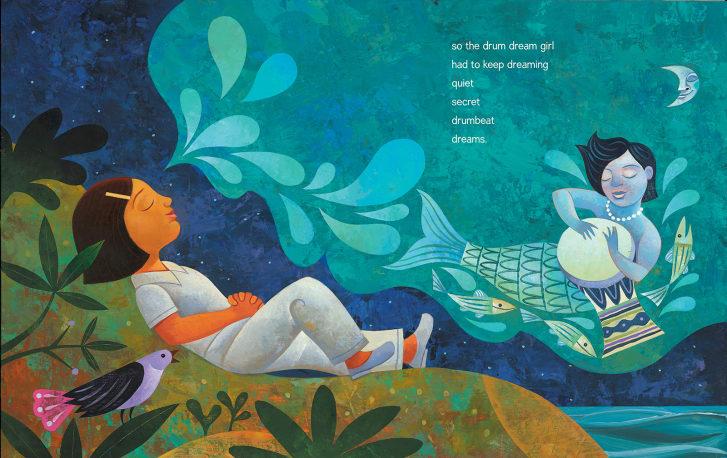
"Drum Dream Girl," written by Engle and illustrated by Rafael López, tells the journey of a girl in Cuba who pursues her love of drums. Credit: Margarita Engle/Clarion Books
I was born and raised in Los Angeles, but developed a deep attachment to Cuba, where my mother is from. We would go back in the summers to visit the extended family, but we were cut off from them because of travel restrictions after the missile crisis. When I was finally able to go back as an adult in 1991, I found that I wanted to write about the experience.
I know that, all of a sudden, we're not supposed to hyphenate things anymore in our writing. But I felt like I lived on that hyphen, and the compound word "Cuban-American." It was a bridge and an abyss at the same time; by the time I was a teenager, it felt like it was easier for a US citizen to walk on the moon than to visit relatives in Cuba.
Music is a recurring theme in my books. My picture book "Drum Dream Girl" is based on the life of Chinese Afro Cuban girl Millo Castro Zaldarriaga, who played the drums in Cuba when it was forbidden to girls.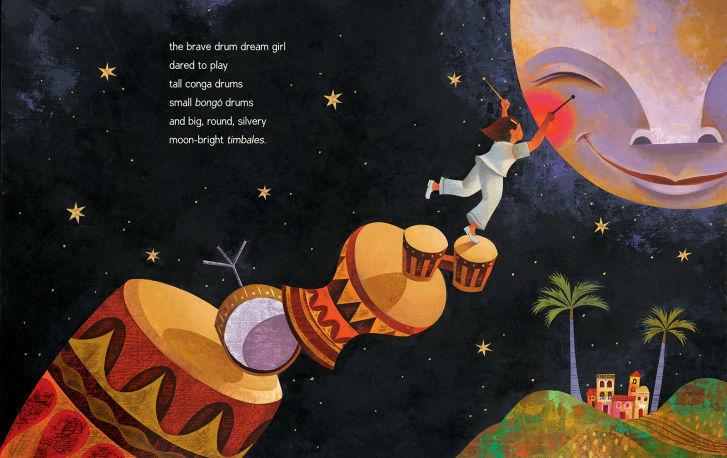
The story is a real tale of perserverence in a dreamlike setting. Credit: Margarita Engle/Clarion Books
I read the memoirs of her older sister and there were these amazing photographs of this all-girl band -- the first of its kind. In the 1930s, most of the jazz bands had been men, and here was one made up entirely of sisters. And the youngest was a 10-year-old girl who wanted to play the drums.
Even today, in certain cultural traditions that come from West African religion, women in Cuba have to fight for the right to play certain types of drums. But in Millo's case, for entertainment, she really opened that door. The band became very successful, and everybody loved her drumming, so, after a while, many other women drummers followed.
I was inspired by her courage and her perseverance. When I talk to children about that book, I ask the boys, 'How would you feel if society said you couldn't drive monster trucks, or only girls could motorcycle race?' And all the boys immediately give up their right to be the only one to do something. They instinctively understand that this isn't fair.
Charles Esperanza
Charles Esperanza is an Afro Puerto Rican illustrator and author whose new book, "Boogie Boogie Y'all," published this summer. The book is a brightly colored depiction of his home borough of the Bronx, as well as a tribute to graffiti.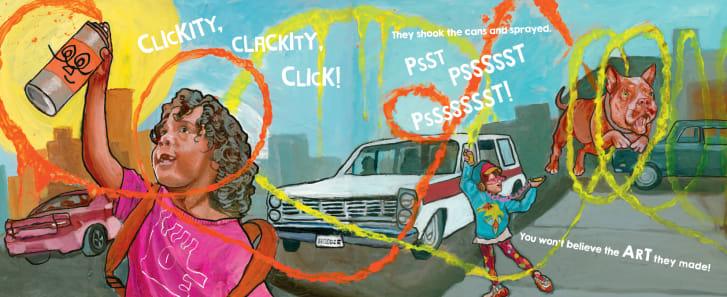
"Boogie Boogie, Y'all" celebrates the Bronx as a colorful cultural hub. Credit: CG Esperanza
I'm interested in telling stories and taking something about our culture -- as a Black and Latino person, and as a Bronx resident -- and de-stigmatizing it. What inspired "Boogie Boogie, Y'all" was an awesome graffiti piece outside of the community center where I teach. I took a photo of it to show to my students; it turns out none of them has seen it before. I said, "Y'all don't really look around and take in all of the awesome things that are on the street."
I've asked my students what they've heard about graffiti and a lot of the answers were recycled from decades ago: It's gang symbols; it's vandalism. I wanted to give them another perspective about it; I pay homage to a lot of contemporary street artists in the book like "Gully" and "Modus," who can be seen all over the Bronx and the rest of New York City. They've seen the book and have expressed excitement about it.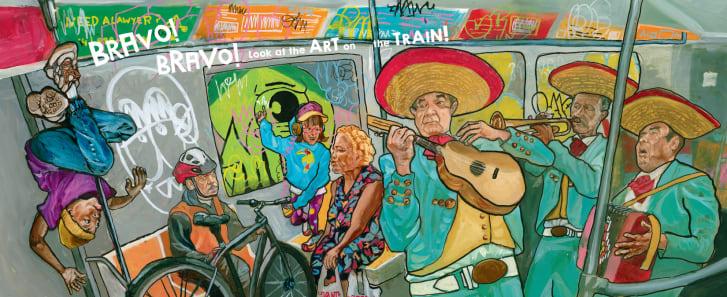
Esperanza wrote and illustrated the book after a conversation with his students about noticing what's in front of the them on the streets of their home borough. Credit: CG Esperanza
I think kids need to be able to see themselves in the books that they read, and they need to be able to see themselves in the art they look at. As a teacher, I notice many of my Black and Brown students create White characters. Instead of preaching to them that they should use people of color, I show them examples of amazing Black characters, created by artists like Yesenia Moises, LeSean Thomas or Geneva Bowers to inspire them.
I get a lot of inspiration just walking around the Bronx, and I definitely wanted to capture that. I love the borough for its grittiness and personality. We are known for our cultural contributions through hip-hop, but we have so much more in food, fashion, art and music that's waiting to be shared with the world. All of our communities -- old and new -- are adding their vibrant tag to the wall that is the Bronx.
When I was first trying to get into the business. I heard some really wild things about why publishers wouldn't have a Black child as the protagonist. I remember one editor told me that for picture books, they would rather have an animal like a panda or something as a main character, because every kid could relate to that. I was blown away, realizing that the underrepresentation was intentional this whole time. So I'm glad that we have so many artists now that are coming in and knocking down the door and doing awesome things.
Each author's personal statement was edited for length and clarity by a member of the CNN Style team.Jess Bergman/August 11, 2021
The Uncomfortable Rise of the Instagram Novel
Beth Morgan’s “A Touch of Jen” is the latest work to reckon with a social media–fueled obsession.
https://newrepublic.com/article/163238/uncomfortable-rise-instagram-novel-touch-jen-beth-morgan?utm_source=Sailthru&utm_medium=email&utm_campaign=Lit Hub Daily: August 13, 2021&utm_term=lithub_master_listA sudden price change for Amanda Gorman’s book shocked booksellers.
https://www.publishersweekly.com/pw/by-topic/industry-news/bookselling/article/87229-gorman-book-s-price-hike-startles-booksellers.htmlWriters notes: the record label remixing novels into music
https://www.theguardian.com/books/2021/aug/27/writers-notes-the-record-labels-remixing-novels-into-music-bibliotapesREFERRAL- New Environmental Canon, An LGBT+ Picture Book, and Women in Horror: This Week in Book News
https://kobowritinglife.com/2021/08/27/new-environmental-canon-an-lgbt-picture-book-and-women-in-horror-this-week-in-book-news/
-
Shoka La Kipito - my final fantasy weapon, what do you think?
https://www.deviantart.com/hddeviant/art/Shoka-La-Kipito-899283961 -
My Entry for the Werewolf your pet is LINKED below, above is the invitational image
OCTOWOLF! ITS A WOLF THAT'S AN OCTOPUS
Gif Comic
https://www.deviantart.com/hddeviant/art/Theendof-octowolf-gifcomic-896630322Comic Pages
PAGES
Page 1
https://www.deviantart.com/hddeviant/art/Theendof-octowolf-Page1-896626596?ga_submit_new=10%3A1635745388
PAge 2
https://www.deviantart.com/hddeviant/art/Theendof-octowolf-Page2-896627148?ga_submit_new=10%3A1635745711
PAge 3
https://www.deviantart.com/hddeviant/art/Theendof-octowolf-page3-896627414?ga_submit_new=10%3A1635745938
Page 4
https://www.deviantart.com/hddeviant/art/Theendof-octowolf-page4-896627719?ga_submit_new=10%3A1635746173
Page 5
https://www.deviantart.com/hddeviant/art/Theendof-octowolf-page5-896627980?ga_submit_new=10%3A1635746398
Page 6
https://www.deviantart.com/hddeviant/art/Theendof-octowolf-page6-896628158?ga_submit_new=10%3A1635746603
Page 7
https://www.deviantart.com/hddeviant/art/Theendof-octowolf-page7-896628399?ga_submit_new=10%3A1635746851
Page 8
https://www.deviantart.com/hddeviant/art/Theendof-octowolf-page8-896628713?ga_submit_new=10%3A1635747164 -
Title: Ebonee- in my style- ink calligraphy color
Artist: Richard Murray
Poem In Post; Title: The Rays of the Sun Touch The Stream
https://www.deviantart.com/hddeviant/art/Ebonee-in-my-style-ink-calligraphy-color-897403531 -
Howdy y’all! RJ Cyler answered burning questions about The Harder They Fall during his Answer Time at 12pm PT/3pm ET on November 3, 2021.
Catch The Harder They Fall in theaters on October 22nd, and streaming on Netflix on November 3rd
Video Answers
https://netflix.tumblr.com/tagged/rj-answertimeThe Introductory Video- use the link above for all Video answers
Image Post
https://netflix.tumblr.com/post/665121848114151424/howdy-yall-rj-cyler-will-be-answering-your -
Wednesday, November 17th, is Day of the Deviant: a day of fun art streams featuring professional artists! (Learn when the event starts in your time zone.). :squee:
Watch AliciaMarieBODY, AshMcGivern, TheOneWithBear, and Iamjustino teach each other how to create in their own style and mediumGet tips and insight on how to monetize your art with stumpyfongo, arvalis, AdorkaStock, and SOZOMAIKA
Take a tour of DeviantArt with danlev
Follow along with Ladowska as she colors line art created by simoneferriero
Each stream will feature opportunities to win prizes — decks for video streaming, professional drawing and computer tablets, noise-canceling headphones, gaming chairs, and more. If you're not able to make it for one of the streams you're interested in, have no fear! The streams will be available on DeviantArt's YouTube channel to watch afterward, so you can catch up on what you missed!
A major art contest will also be launching on November 17th, featuring over $11,000 in prizes!
Save the date and set a reminder — you won't want to miss out on Day of the Deviant! :ufo:https://www.deviantart.com/team/journal/COMING-SOON-Day-of-the-Deviant-894694550
-
-
Title: SOWAR and APOSAS <from the book >
Author URL: https://roseanneabrown.com/ < A SONG OF WRAITHS AND RUIN | Next: A PSALM OF STORMS AND SILENCE + Shuri Graphic Novel >
Artist URL: https://twitter.com/UneReineDesPres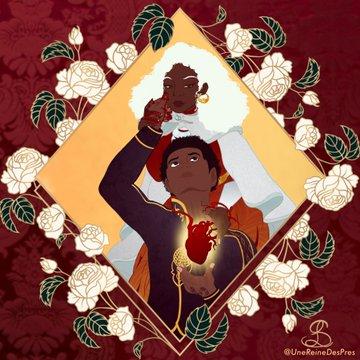
-
HEAVY METAL Exclusive Preview: NEVER NEVER #5 (OF 5)
Never Never #5 hits your local comic book shop and digital platforms on November 10, but thanks to Heavy Metal, Monkeys Fighting Robots has an exclusive preview for our readers.
The book is written by Mark McCann, with art by Phil Buckenham, Agnese Pozza drops the colors, and you will read David Withers’ letter work. Christopher Lair created the cover.
About Never Never #5:
In the final issue of the series, armies of killer king Petros strike the heart of the pirate stronghold, and Winter must make a last effort to free the denizens of the Never and get back home. Aided by the fairies, will it be enough to get past legions of feral boys and the killer king himself?Enjoy the preview below BY CLICKING THE PREVIEW LINK!
-
Princess Candace in Purple Puff land < check out the "Princess Candace and Prince Menelik" gallery for more content>
https://www.deviantart.com/hddeviant/art/Princess-Candace-TofuChrissa-submission-899748285 -
as a harlemite, whose bloodline has been in harlem long before I was born, I admit, I wish, black people will stop. HArlem isn't a black community anymore. Yes, Black people live here, but this community is mixed and going to white. it isn't black and I think people in media, black people in media, like to do what to many of the remaining black people in harlem like to do, and that is hang on to a former time... and in historical defense, harlem has been many things, before it was a black community, it was a white one, the white community version of harlem had four versions. Originally it was the defensive fort for manhattan. One of the last battles of the secessionary war, called the revolutionary war was in harlem. Then it became farmland, as a subset for the Bronx, which was the main granary of the city, owned by the brunkz family. then it became urbanized for the top rich ala the polo grounds or some of the homes in harlem's structure or appearance and then it was for the european immigrant in particular italians and jews of europe. And, before it was white, it was part of the lenape people's cyclic living where they found rare herbs on the island of manhattan. So, I am not bitter that harlem is not black today, but it isn't and I find the need for black people in media, as meagan good does in the article to evangelize a former community is... dysfunctional. ... to that end, I hope the show does well. Love the cast, pretty black women all, great supporting cast. Hope the stories speak well to black women in particular.
IN AMENDMENT
Yes, HArlem still has sexy black women walking around. What people have to comprehend about Harlem is its black populace at one time was the full length of black financial existence. Black people with money , more than most black people will know have lived in harlem. Louis Armstrong or Jackie Robinson or Sugar Ray Robinson lived in Harlem. So, Harlem has always been a home to the Black Statian financial one percent and for them HArlem has been unchanged, cause they weren't the ones kicked out.
IN AMENDMENT 2
The executive producers are Pharell Williams and AMy Poehler, Pharell williams is from the south. His idea of HArlem is not a Harlemite's idea. And AMy Poehler is white and probably has a vision of harlem from the fiscally well to do from a black perspective blacks that historically hang around whites more. And meagan good is from L.A. and her father was a cop. what do any of these people know about Harlem?
Ah well, what the hell.
I am willing to say I rather they chose PArk WIndsor Hills in Los Angeles? why not?
-
Title: See the world in my way- day of the deviant2021
Artist: Richard Murray
https://www.deviantart.com/hddeviant/art/See-the-world-in-my-way-day-of-the-deviant2021-899560350 -
FROM : MAd SKillz < skillzva on facebook>
I may get crucified for this but its how I feel.(just jokes)
 I grew up in a similar situation...no father tho. And I NEVER IN MY LIFE seen a woman with this many morals. EVERRR BRUH. Being that poor and having those kind of morals never made sense to me. Black Jesus brought yall good luck? You made James take him down. James finds 5k? You make him give it back. They wanted yo ass to star in a PAID Vita Brite commercial? You didnt do it cuz it had alcohol in it. James going to the pool hall cuz yall bout to get evicted? You made him put the pool stick back. They pass JJ up to the 12th grade? You made him go back to the 11th. Preacher wanted to take James on the road to do the "Im healed" scam? You made him stay home. The projects were not the villain of this show. FLORIDA WAS. YOU WERE THE BIGGEST HATER ON TELEVISION.
I grew up in a similar situation...no father tho. And I NEVER IN MY LIFE seen a woman with this many morals. EVERRR BRUH. Being that poor and having those kind of morals never made sense to me. Black Jesus brought yall good luck? You made James take him down. James finds 5k? You make him give it back. They wanted yo ass to star in a PAID Vita Brite commercial? You didnt do it cuz it had alcohol in it. James going to the pool hall cuz yall bout to get evicted? You made him put the pool stick back. They pass JJ up to the 12th grade? You made him go back to the 11th. Preacher wanted to take James on the road to do the "Im healed" scam? You made him stay home. The projects were not the villain of this show. FLORIDA WAS. YOU WERE THE BIGGEST HATER ON TELEVISION. 

 check my story for the proof.
check my story for the proof.
MY REPLY
Where do I begin?
Lets start with his points and he made many.
I will iterate the points
POINTS
1) he grew up similar to the scenario in good times, and he mentioned no father specificially.
2) he never knew a woman with this many morals
3) being fiscal bottom and having high morals never made sense.
4) the projects, the white system, wasn't the criminal, Florida, the specific moralled black matriarch wasMY THOUGHTS TO EAH POINT
1)If I ask the average person in the usa today, who are the richest people in the usa as a group, what is their phenotype. They will say, most fiscally rich people are white, a label referring to their average skin tone , which does merge into the mulatto range, ala passing. The next question is, how do they get their money? Most will say the truth, inheritance, their forebears had money and gave it to them.
Now, if I ask most people, why are black people poor? Most will say, Black people don't know how to play the game. Black people are lazy. Black people need to improve themselves, learn to strive more. Few will say the simple truth, Black people have no one to inherit money from. The next question is why? And this goes to history.
One of the problems with the black community in media, is that our poverty is rarely comprehended as simple as it needs to be. Two cultural institutions in the usa didn't allow for black inheritance. First was slavery, second was jim crow. Slavery predates the usa, which is another truth I find most in the usa don't seem to comprehend. Slavery is from the european colonial era but it survived in tact , unblemished, after the creation of the articles of confederation or the constitution, thus why most free blacks fought against the usa in its earliest wars. Slavery ended with the thirteeth amendments and the destruction of the southern states, and the desire of the northern states to eliminate the financial competition with a slave based society utilizing industrial tools. But after a very short respite <solid seven years > called reconstruction commonly, Jim Crow was born from the dead carcass of slavery and continued the goal of denying inheritance to black people.
That is why the black community in the usa is fiscally poor. Jim crow ended , in my assessment, in the 1980s. So from before the usa was founded till the 1980s, Black people were in majority <yes, exceptions always exist in life but they are not stnadards or pathways or rules> denied inheritance. The projects themselves were never meant for black people. If you know the history of the projects, they were meant for poor working whites to have a place in an urban setting to refind their fiscal bearings, starting in the 1950s. White flight from big cities and continual movement to big cities by non whites made the white city governments change course and offer projects as dens for people not white mostly to congregate in the city. A eternal source of cheap labor and fiscally poor people. Whereas projects in the 1950s had storefronts, the latter ones did away with that and just became housing.
Did you know that when the vietnam war ended, vietnam had hundreds of thousands of orphans from usa soldiers and vietnamese women living in orphanges? now, why does this matter?
It connects to slavery/jim crow, and relationships between child bearers. Slavery plus Jim crow denied inheritance for black people. The primary tool was violence. but a secondary tool was separation. To be blunt, during slavery black people were not married in majority. Black women were property of the master. the master, to use crude language, tapped that ass , more than the property of the white man she called her black husband. So since the community of the usa is from the european imperial era, for most of the history of the usa or what preceded it , black children have not had either parent. I am not saying that to reject anyone's emotions, but to bring a historical reality to black people's narrative around child raising which rarely admits reality about our community in the usa. Jim crow is what rebuilt the south and spurred the usa industrial machine. That is another historical fact that goes absent. Jim crow was powered by black men in prison on false charges. These men were given sentences meant to be for life, for the purpose of rebuilding the usa. The 13th amendment says slavery can still exist in prisons so white people in power ushered black people, specifically black men, into prisons.
I was raised by both my parents who are still together and loving, through many challenges. And my family is upper poor, not the fiscal bottom.
But, white or black filmmakers push two narratives, for different reasons that are lies. The narratives are: black people's poverty is a modern thing not from a lack of inheritance over centuries, the black family unit has its members to blame for its history of fissure.
Good times, written by whites, uniquely has a loving black father, who died because of Amos disagreement with the studios. But his death fits the truth, the environment for the black community which has been engineered by whites over centuries has successfully hindered black people, is not meant to, has hindered. And, the black people who traveled to the north to escape being burned alive and possibly find work, found fewer fires up north but less fiscal potential. But whether in the south or north the reason is a lack of inheritance, not lazyness or anything else.2)+3) I must combine. His comments prove how many black people either do not know the history of black people in the usa or have a false interpretation of it.
The Club Women was a group of black christian women who believed that if black people educated themselves and showed utmost manner that will overcome white violence. The sit-ins was based on a similar principle. This was black people saying I will go into a story where a sign outside says for people like me to NOT ENTER. The result is obvious, you enter a place where you are told by its owners for you not to come, you get your ass beat. Hell, most people know about romeo or juliet but what do you think the capulets and the mantagues were like? What is funny about the usa and the sit-ins and the club women is how , in human history it is so common for groups of people to ban others. In northern ireland they have many places where catholics can't go and protestants can't go.
So, When he says he didn't know any woman with this many morals, I will not deny his statement. But it proves he didn't know enough older black people who could tell him of many who did such things. Remember, non violence isn't merely about the white man not being violent to blacks but it is about blacks not being violent ourselves even when faced with reason to be.
Most black leaders, including MLK jr, never prescribed to such extreme views of non violence personally. but, the black community in the usa from the time of reconstruction has a long history of it.
Now is, Florida a caricature? of course she is. BUT, she reflects the truth of the black community from the end of the war between the states to the 1970s. I know that some black people who were land owners told relatives to not fight whites and sent them away. I do not concur to the idea of fighting wars with morals, but that was and is a residual from slavery and jim crow.
And that comes to his dysfunctional allusion. Black people were not merely poor during slavery or jim crow, we were impotent. Fiscal poverty is one thing, but when one is fiscally poor PLUS under constant assault. It changes ow you view things. Again, I can tell you I know of black people off line who were alive in decades past and admitted that every black women in their town was raped by whites. every black woman.
When your community is under assault , and under watch for any action that is deemed illegal /criminal/amoral, it can teach you to desire morality not for god but for self. if you can't stop your wife from being raped, your child from being spat at, yourself, from being put in prison, and you don't have arms, you don't have resources, you don't have a community enabled, then following a higher moral code can be deciphered as your only defense.
Again, Florida is a caricature, but what she represents is truth. Any one's Esther Rolle's character's age knew that the system will destroy any black person it finds doing a simple crime. My great proof of that is the rockefeller laws, initiated in the 1970s. In NYC, white men could sell cocaine in mountainfulls and get lesser to no sentence that black men selling a bag of marijuana. That is why Florida feared crime, feared illegality. IT wasn't cause she feared or opposed money. But what if? What if the white man knew? what if the white man discovered? Just remember, the chicago police department went into fred hamptons house and murdered him, absent any crime. In that kind of environment, you are so keen to risk?
Some, yes, but Florida is not that big a caricature. She is, but not that big a caricature based on the black community in the usa.
The problem with black or white filmmakers is black goodness is touted as religious, spiritual, never historical, never based on life.
The goodness isn't about christianity , it is about a fear of the system treating you unfairly, which it will, which it proved over centuries it will do and is still doing. Movies from all sort of directorso or writers make is religious, and that is the flaw. Florida is scared. She has been scared her entire life and will die scared.
In the great Daughters of the Dust, the gullah live in those spare island lands, surrounded by bayou and absent any infrastructure, but will rather that than live exposed to whites. That is fear. The people of Tracadie in nova scotia, survived cause they lived so far away , in a wilderness, they were free from assault, whether they committed an illegality or not, and that is why Florida feared in her urban project surrounded by whites, in the heart of the white kingdom.
His point is to invalidate her fears by suggesting her morality is based on morals, but her morals are based on fear.4)LAstly, his final thought. The criminal wasn't the white system , it is the black moralled matriarch.
Of course he is wrong, he admitted he is joking. But, I will defend his hypothesis with a little fortune telling. Slavery plus Jim crow denied black inheritance. But, after jim crow, I will call it the rainbow era, Black people in the usa have acquired and started to inherit fiscal wealth. Florida's fears was suitable in the days where black people were denied by white people the ability to inherit fiscal wealth. But, when one is wealthy, one must take risks, and though most risks fail in fiscal capitalism , some will succeed.
The black community isn't potent. My proof is simple. Name me one city with a financial growth in the usa, where over half the cities fiscal quality/industry is owned by blacks? I will help you, you can't find one. So, Black people are not in some place of suitability yet. But, it will happen eventually. That is why whites blockaded black inheritance. when one inherits, money is different.
Back to movies, hollywood hasn't found a way to approvingly display multiracial wealth. We all know in modernity, black millionaires or billionaires exists in the usa. But, hollywood usually places fiscally wealthy black characters in fiscally white characters roles. The problem storytelling wise is simple. Being rich is being rich but in different communities, the collective path to being rich matters. The black fiscal elite, live as gluttonous as the white, but they have subtle variances and hollywood or independent film, has not found a set of films to visualize that difference. In the show atlanta, the black rich are ugly, but mirrors of white rich and that is not exactly true. As F Scott fitzgerald said, the wicked rich, I concur to that, but they have variances. My proof is fiscally rich white jews in film. in films, fiscally rich white jews are as corrupt as other fiscally rich white people but their is anuance to their design which shows, the other.
Films have yet , black or white made, to solidify the other aspect to the black fiscal rich which is clear to see, but not such a great selling pointIN CONCLUSION, history is important, but also challenging. The challenge in history is when it forces you to look at scenarios you can't control or undo that are not merely negative, but have a lasting communal impact. The nonviolent community , based in the black church, near 170 years ago, rejected violence, rejected a mass movement away, rejected a foscused movement in the usa. The nonviolent movement had three main strategies. No violence against whites, a focus on individual liberty to black people wherever we live, a responsibility on black individuals or the black community to maintain the nonviolent stance while moving ever upward in the fiscal or governmental halls in the usa.
Today is the result of that plan in the usa. it didn't fit all black people, it wans't meant to. It had casualty, though all black paths were and will have casualties. But, in the same way, Florida is chided while Mrs. Huxtable is beloved, the modern reality has meant a cultural precipice has been reached that isn't defined by either woman or their larger media spaces. Neither is an enemy, but neither reflect a black community that can finally , in peace, inherit.-

Was Florida Evans the criminal? is the question.
Lets take a look at her crimes. All her crimes he listed involve her hesitation at opportunities from luck,system, illegality.
Luck is black jesus/finding 5,000/Vita brite commercial
System is JJ passed up a grade
James Pool stick/Preacher scamFrom Slavery which predates the founding of the usa and was unchanged through the founding, thus why most free blacks fought against the usa, to the end of Jim crow, which in my view ended in the 1980s as a holistic system, but started immediately after slavery ended, Black people were denied the ability to inherit/have stable homes. Remember, the murdering and imprisonment of blacks, who mostly lived in southern states, started while the war between the states was finalizing. And before said war was slavery, where most black people were property not free. The black woman who calls that property her husband is in error. That black man who calls that property his wife is in error. The child in her belly is not their's. Their child is property of the person who owns them.
Now you can say, Rich, you just said Jim crow ended in the 1980s. Goodtimes is 1970s, can't Florida Evans let all the past go. Florida evans is a caricature, any extremity in any human character is a caricature, but her problem isn't morality or living in the past, her problem exists in most black people. Said problem is fear.
Florida is afraid. Black people today, who live better than black people ever before, as a community, in the usa, don't seem to realize, most black people in the usa or the european colonies that preceded it were terrorized. Slavery or Jim crow are mostly remembered as fiscal scenarios. One is absent money, but these scenarios also came with an equal share of terror. You cut the foot off a slave to terrorize, you whip a female slaves skin off to terrorize, you burn black towns or communities down to the ground to terrorize. You place false and exorbitant charges on a suspect to terrorize. The goal is to make the person you are terrorizing fear everything.
This is what the poster miss about Florida Evans. Just remember, Fred Hampton was murdered in his home no different than medgar evers was murdered outside his.
The christian god gives you luck, but what about the devil. You find 5,000 but what happens if someone comes to claim it. You are in a commercial but what if your hungry neighbors find out or your fellow church members see you in an alcoholic commercial. JJ is passed up a grade, but what has he truly merited. James is gambling but what happens if he wins and someone kills him for it.
Fear. And Black fear in the usa is well founded. Yes, Florida is a caricature. But, the history of the black community in the usa is full of reasons to fear, especially to those of her age.
Sequentially, why Mrs. Huxtable is beloved far more than Florida Evans. MRS Huxtable is afraid to. Why do you think she acts like the governess to everybody? She is no different than Florida in fears or matriarchal tactics. The difference is her husband was fortunate/lucky to become a doctor at a time when whites were willing to pay black doctors. Remember, black doctors have been in the usa since the 1800s, but getting paid fairly, fairly, was a modern inviention circa the 1980s.
Florida is a woman of her times, reflecting, even as a caricature, the warranted fears of a nonviolent community in majority denied: income/inheritance.
Black people for the first multiple of decades in the history of the usa or the european colonies that preceded it can now inherit. With that inheritance and all that it implies comes a lofty perch that it is easy to look down on those far less fortunate. Even if you are merely joking.
-
-
Title: sailor storm
Artist: Kimberly Moseberry < https://www.deviantart.com/ebony-chan >
-
My favorite Sidney Poitier films, and soundtracks
Paris Blues
The Long SHips
https://ok.ru/video/724620479028
Buck and the PReacher trailer
Nonqonqo from a warm decemberSoundtracks to note
Buck and the Preacher theme, stil the baddest western theme song you ever heard, hands down
Paris Bluesmy after thoughts
May his spirit fly high. An unquestioned legend of cinema. An ambassador to the miscegenist/nonviolent/meritocratist culture that is the symbol of the black elite in the usa for 150 years and counting. .... I will not lie about my feelings/thoughts to his career in majority as a thespian/sex symbol. They are not as positive as many other black people. But, I am a unashamed fan of Paris Blues<the soundtrack of that movie , man underrated classic, duke ellington/louis armstrong/billy strayhorn/aaron bridgers/ and the original book story would had made it even bigger , always feel bad for poitier/carroll/newman/woodward , they had a gem if the money didn't get involved>;the long ships <I love that story> ; buck and the preacher<that somehow many black people who supposedly love poitier have never seen >;a warm december <my personal favorite in terms of romance movies from him>... I want to add something I researched recently, I never realized how many films poitier directed, stir crazy was made for 10 million and made 100 million, I argue poitier warranted more films to direct. well enough of my needless banter, i hope poitier died with a smile, i know he had many who loved him.ART title: Sidney Poitier
Artist: Shaytan666
https://www.deviantart.com/shaytan666/art/Sidney-Poitier-287966796
-
Title: Art Divination
Artist: Deviantart Team
The first word you see is your art focus for 2022!
What did you find?
https://www.deviantart.com/team/art/Art-Divination-902706215
-
May your spirit fly high Bell Hooks
hooks’s family said contributions and memorials can be made to the Christian County Literacy Council < https://www.paypal.com/donate/?hosted_button_id=CGQPNACBYNRZA > , which promotes reading for children, or the Museums of Historic Hopkinsville Christian County < https://www.paypal.com/donate/?hosted_button_id=CGQPNACBYNRZA> , where a biographical exhibit is on display.
ARTICLE
https://lithub.com/bell-hooks-generous-feminist-thinker-has-died-at-69/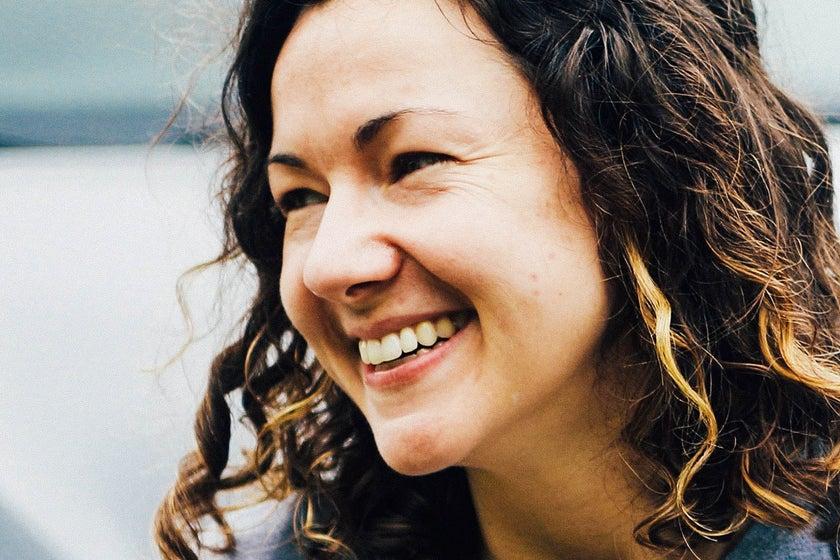
What It’s Like to Have Your Book Banned by the School Board
BY MARY HARRIS
DEC 13, 20213:06 PM
Ashley Pérez used to teach English, down in Texas. Back in the early 2000s, that meant assigning the so-called classics—To Kill a Mockingbird, Of Mice and Men, Shakespeare. I asked her whether there were any books she wouldn’t teach. “I didn’t teach from my district literature textbook at all. Actually, we used them as doorstops,” she said. “I think that when literature is put in a textbook, it stops seeming alive.”Pérez writes young adult books now, but the way she said that last bit—the way she talks about literature being “alive”—I felt like I was back in the classroom with her, feeling the muted thrill of AP English. Because Pérez taught mostly Black and Latino kids, she thinks a lot about how to make books like hers welcoming for all kinds of readers. That means thinking about the hidden messages her stories can send.
But finding Pérez’s book in a school library has gotten a lot harder over the past year. That’s because, as careful as she is about being inclusive when she writes, some people say they feel left out of the narrative. And those people are showing up at school board meetings, demanding books like hers get pulled off the shelves. The American Library Association has called this year’s spike in book banning a “moral panic.” On Monday’s episode of What Next, I spoke with Pérez about what it’s like when your book is the one getting yanked out of libraries. Our conversation had been edited and condensed for clarity.
Mary Harris: Before we get to the backlash over your book, Out of Darkness, can you describe the work, in your own words?
Ashley Pérez: Out of Darkness is a love story. It’s an interracial romance between a Mexican American girl named Naomi, who comes to East Texas from San Antonio, and an African American boy named Washington—Wash is what he goes by. And it’s set against the backdrop of a historical event that occurred about 20 minutes from where I grew up, which is the New London School explosion. A lot of people have never even heard of this event, but in March of 1937, there was a natural gas leak in the school that, when it ignited, caused a huge explosion and the estimate of deaths is close to 300. They never knew for sure because all the school records were destroyed in the explosion.
Something else I noticed when I was reading about Out of Darkness is that I don’t think it’s an easy read. The New York Times review is written by a pretty grizzled reporter, and he wrote, “I actually had to close the book at one point to seek respite with Facebook. And puppies.”
Yeah, I remember that. I agree completely. And often when I hear from folks about the challenges of reading it, I can only respond with understanding, because I lived inside that story world. My heart is still buried in that book. But it is a challenging narrative. It’s a book for a student who is willing, wishing to engage with some very difficult histories. They’re histories of racial violence, histories of sexual abuse, histories of misogyny—those things are all there in the book. There is also a lot of love and family and playfulness and joy that’s happening in spite of those ever-intensifying pressures and constraints.
Pérez says when Out of Darkness was released back in 2015, she braced herself for some kind of pushback. But in the six years the book had been out, she never really got any. That is until she got word back in the spring that it had been put on a “pause” in a Central Texas school district. Then, over the summer, a video emerged. It shows a parent, Kara Belle, objecting to a passage in Pérez’s book. She’s speaking at a school board meeting just outside of Austin.
The words Belle’s quoting in the video do appear in Out of Darkness, but she is compressing an entire scene into a string of buzzwords. In this scene, Naomi, the main character, has walked into a new school. Her classmates recognize she’s the prettiest girl there. But they dismiss her because of her race. “A Mexican is a Mexican is a Mexican,” one girl says. And the boys? They daydream about sexually assaulting Naomi.
In September, I had the pleasure of seeing Kara Belle do a dramatic reading of a series of snippets from a chapter of Out of Darkness in a school board meeting in a video that went viral. It circulated with headlines like, “Texas Mom Loses It Over Anal Sex.” She was reacting to the inclusion of the word cornhole in a passage that was from the perspective of white high school students in this 1930s Texas school who were objecting to the arrival of a Mexican American student in their class and we were seeing how the young men in the class were viewing her as a sexual object, etc.
And we should contextualize the video. This mother goes to a school board meeting. She’s just yelling words at you, and you don’t really know what she’s talking about
Nor does she know what she’s talking about, right? Because she definitely hasn’t read the book.
When I reacted to this, my brain was just kind of scrambled because I was like, “What is going on here?” But those are your words. How did you react?
It’s so painful to hear something that you’ve worked incredibly hard to shape and to present in a way that is part of a literary whole—to see someone just yank those phrases as if any of the phrases that she’s using are things that I endorse. Several of the things are dialog, and the whole point of the passage is to show readers what the main character has to endure, what she has to navigate, the ideas and perspectives and limiting beliefs that are circulating in the school space where she has to spend eight hours of her day.
But this parent is not interested in the function of that passage in the work as a whole, nor is she interested in the work as a whole. There’s a reason she’s reading from something in the first 30 pages. These parents have been steered toward particular books by websites like No Left Turn or Moms for Liberty, so they’ve already decided that this book needs to go, and they’re just looking for what will be the most attention-grabbing. Particularly this individual knew, I think, that her presentation of the topic was going to grab attention. And that was the goal.
You pointed out too that what the district did here—because this woman did win, and the book got taken off the shelves—violated their own policy. Their policy was that they might review a book, but during that time, the book would remain on the shelves. That’s not what happened here.
No. And unfortunately, in these challenges that are happening all over the country, we’re seeing that over and over. Districts have these policies for a reason. If I, as an English teacher, was afraid that one parent complaining would mean that all the books I was teaching were going to be removed, then what am I going to teach? I’m not going to teach the thing that’s challenging and controversial in some way. I’m going to teach the most unobjectionable thing. And that’s kind of the goal here is to chill discourse and intimidate teachers and librarians. So it’s not even just about removing Out of Darkness from the library. It’s about creating an environment in which the librarian, the next time they order books, is going to think twice before choosing a book that engages with difficult histories in our nation or that engages with LGBTQ identities or that engages with teen sexuality in some way, even if that book is highly recommended in professional journals for school libraries.
Another thing that bothers Pérez is that while parents are often complaining to their schools about the sexual content of books like hers, that doesn’t seem to be their true objection to what she’s written. And she feels like that because she sees the books that aren’t getting banned.
I portray these events to challenge them, not to endorse them. Now, I often bring up the Bible because I grew up in a Bible church and I know that book really well, and I ask, “Do you think that the Bible is grooming young people to be sexually abused or gang raped or to engage in incest, because all of those situations occur in that text?” There’s just no denying the pattern of which books are being targeted. Even though the most common reason given is sexual content, it is not the sexual content that these books have in common. These books have in common centering characters or experiences from nonwhite, nondominant communities. If I could make a stack of all of the books in the high school library with sexual content and make a stack of those that feature straight white middle class characters, that’s going to be the highest stack. But those are not the books that are being challenged. And every middle school and high school in Texas, I’m willing to venture, has copies of the Bible. So this idea that this content is unacceptable in some books but fine in others is where I feel the actual intentions, and what kind of message is really being sent becomes clearer.
Part of the reason I wanted to talk to you was this statistic from the American Library Association, which found that these conversations about banning books in schools, they’re happening more often this year than last year. And it seems like a major spike. Given that statistic, I had this question for you: Do you think there are any books that should be banned from schools?
No, I think once a book is included in a school library, I trust the librarian’s judgment. Although there’s no comparison in terms of volume of challenges coming from folks who identify as conservative versus folks who identify as liberal, there have been a handful of cases where there was a call for the removal of To Kill a Mockingbird or Of Mice and Men. And I firmly believe that those books do belong in school libraries.
We should be clear that the reason why I think many educators have become uncomfortable with To Kill a Mockingbird is that it puts forward a white savior narrative.
Yeah, but discomfort is not danger. Teaching To Kill a Mockingbird in an unqualified way, without contextualizing those issues, is at this point irresponsible. But to teach it in ways that highlight and address those problems can be very powerful. And frankly, our literature is full of narratives that are problematic in many of these ways, and we don’t have to teach every one of those problematic narratives. But to find opportunities—even if it’s saying, OK, I’m teaching this other novel, but I’m going to step to the side and have my students read a chapter or two from To Kill a Mockingbird so we can talk about the difference. What’s different when African American characters are portrayed as having agency in their own lives versus when they are portrayed as secondary to the actions of a white character?
One parent in Houston who successfully petitioned her school into getting rid of a couple of books, not your book, explained herself by saying that she’s not into censoring. That’s not what this is about for her. She sees this more as we filter students internet access. We have keywords and trigger words. We know people shouldn’t have access to certain things as a minor. Why isn’t this the same process in school libraries? And I wonder what you’d say to that.
Well, what’s missing from that is attention to what is the material. It’s not a website, it’s a work of literature.
What’s the difference?
Whenever folks are talking about, “We have filters for these other things,” I want to say libraries have those filters, too. They come in the form of professional reviews, librarians referring to the recommendations of professional journals. They can’t read every book. That’s true. But there are resources that guide their selection. So there’s already been filtering. And in the case that they include something that has sexual content, like Out of Darkness, there is a track record of professional, trustworthy organizations evaluating that content and saying, “Yes, this is functioning as part of a literary whole.” It’s not there to glorify the situation. It is part of a story that complicates and challenges that.
It’s not the same as accidentally clicking on pornography.
Exactly, and to imply that it’s the same just reveals a lack of understanding about what it is to engage with literature.
The increasingly heated rhetoric I’m hearing right now when it comes to what kids can and can’t read, the entry point for a lot of parents—what seems to get them so upset—is sex. I wonder a little bit what you make of this sexual panic that is focused on books that deal with race. If you look at the Virginia governor’s race, there was a lot of talk about the book Beloved. Another book that has gotten a lot of attention in the past year was this book Lawn Boy. There’s a very similar school board meeting to the one that happened for your book, where a woman gets up and reads passages where it’s really frank conversations about gay sex, being a queer kid, being a fourth grader having sexual thoughts—stuff that’s tough and stuff that’s challenging.
It’s stuff that’s tough. It’s stuff that’s challenging. But it’s also real. And again, that’s where I come back to: Who am I serving? And I certainly care about parents and their perspective, but I am not writing to please parents. And also, you can’t create literature if you are trying not to offend people. Literature has always taken me to the far, far edge of what I can bear. I’m never comfortable when I’m writing because the things that are worth writing about challenge us.
Can you tell me how your life changed after this video went viral of a woman just dragging your work?
Yeah, my editor called it vandalism, and I appreciate that. The most significant effect has been that because this was so high-profile, my book, which is perhaps more widely read in Texas, since it’s set in Texas, all of a sudden is on the radar of basically every parent participating in this kind of orchestrated challenge. I have been sent lots of materials from private Facebook groups in these communities where my book’s been challenged, removed, or banned. And this is going to sound cynical, but the reason so much of this focus is on sexual content is because folks know they can’t challenge something with a focus on the race of characters or the sexual orientation of characters.
What do they say in the Facebook groups that makes you think that?
I’m going to paraphrase this, but basically, “When you challenge these books, focus on the sexual content, do not use the words gay sex, do not use LGBTQ, do not talk about race. Books can’t be removed for those reasons.” It’s that clear. So while some parents may be there objecting because of the sexual content, there’s clearly an agenda that’s about other issues. It’s about reclaiming this idea that somehow education has been taken away from conservative communities, or that their stories are no longer central. It is really that explicit.
I’ve heard from many school leaders that they’re overwhelmed and exhausted with public information requests. Parents are showing up, even though they’ve passed the number of requests you can make for free, who have no issue running up bills of $500, $600 because they have funding.
And they were requesting like emails or communications?
Purchase orders from the library, beginning of year surveys to check if teachers ask students for preferred pronouns, things like that. They are basically looking for signs that the way things are being conducted in the school somehow violates the principles that they think should govern education.One thing I always want to say really clearly and strongly, especially when being asked about my experiences with this situation, is that what we as authors are going through when these books are removed is a fraction of the struggle and suffering that is occurring for the librarians and the teachers and, above all, the students in these communities. Because trying to learn, trying to teach in an environment of such hostility and opposition is unfathomably difficult. And I hear from teachers and librarians all the time who are at their limit.
The thing I wish I could say to middle-of-the-road parents—parents who might hear a video like that and think, Oh, I don’t think anal sex is the best thing for middle school. Maybe that parent has a point. I would want them to understand that what is happening is that teachers’ and librarians’ and schools’ resources are being pulled away from teaching students and being sucked into these manufactured controversies.
ARTICLE
https://slate.com/news-and-politics/2021/12/texas-school-board-banned-books-ashley-perez-out-of-darkness.html?utm_source=Sailthru&utm_medium=email&utm_campaign=Lit Hub Daily: December 15%2C 2021&utm_term=lithub_master_listPRH and S&S call the lawsuit against them “legally, factually, and economically wrong.”
By Walker Caplan
...
Besides wanting the merger to happen, Penguin Random House has another incentive to fight the DOJ’s lawsuit: according to the New York Times, if the merger doesn’t go through, Penguin Random House will have to pay ViacomCBS, Simon & Schuster’s seller, a termination fee of about $200 million.
...
ARTICLE
https://lithub.com/prh-and-ss-call-the-lawsuit-against-them-legally-factually-and-economically-wrong/REFERRAL ARTICLE
https://kobowritinglife.com/2021/12/17/a-misguided-lawsuit-barack-obamas-faves-and-the-loss-of-two-literary-giants-this-week-in-book-news/
-
Title: Unknown < i say Bridgerton>
Artist: Corpor8chic aka Mahogany art< https://www.deviantart.com/corpor8chic >
Her official site
http://mahoganyartcafe.com/Prior entry from Corpor8chic
https://aalbc.com/tc/profile/6477-richardmurray/?status=1765&type=status -
This is our last “Octavia Tried to Tell Us” webinar. Can you believe it? And it's not because the pandemic is over (because Omicron). But it's definitely time to keep envisioning and building a more just future - because we know there's no “going back to a pre-pandemic normal.”
We are excited to welcome writer-educator-poet Walidah Imarisha. She is the co-editor of Octavia's Brood: Science Fiction Stories from Social Justice Movements and Another World is Possible. We look forward to a lively conversation about Octavia and the future. We'll be online together Saturday, January 22nd at 12:00 noon PT/ 3:00 pm ET.When you register you will immediately receive the link for logging in. On the thank you page, you'll have the chance to submit a question.
Register for the webinar and to share any questions you have!
REGISTRATION LINK
https://event.webinarjam.com/register/37/n1rz5a7v -
Title: Blessed
Artist: GDBee < http://www.genevab.com/ >
prior entry
https://aalbc.com/tc/profile/6477-richardmurray/?status=1808&type=status


